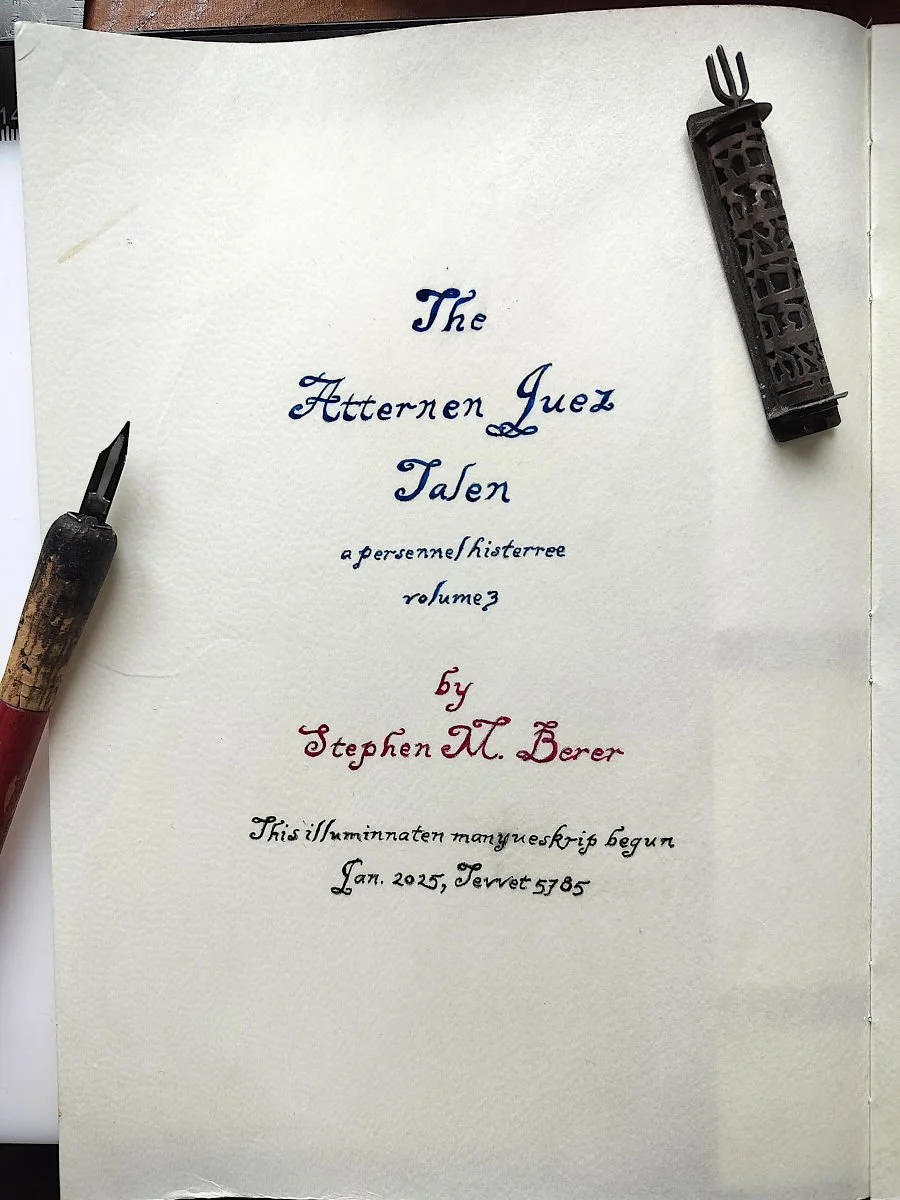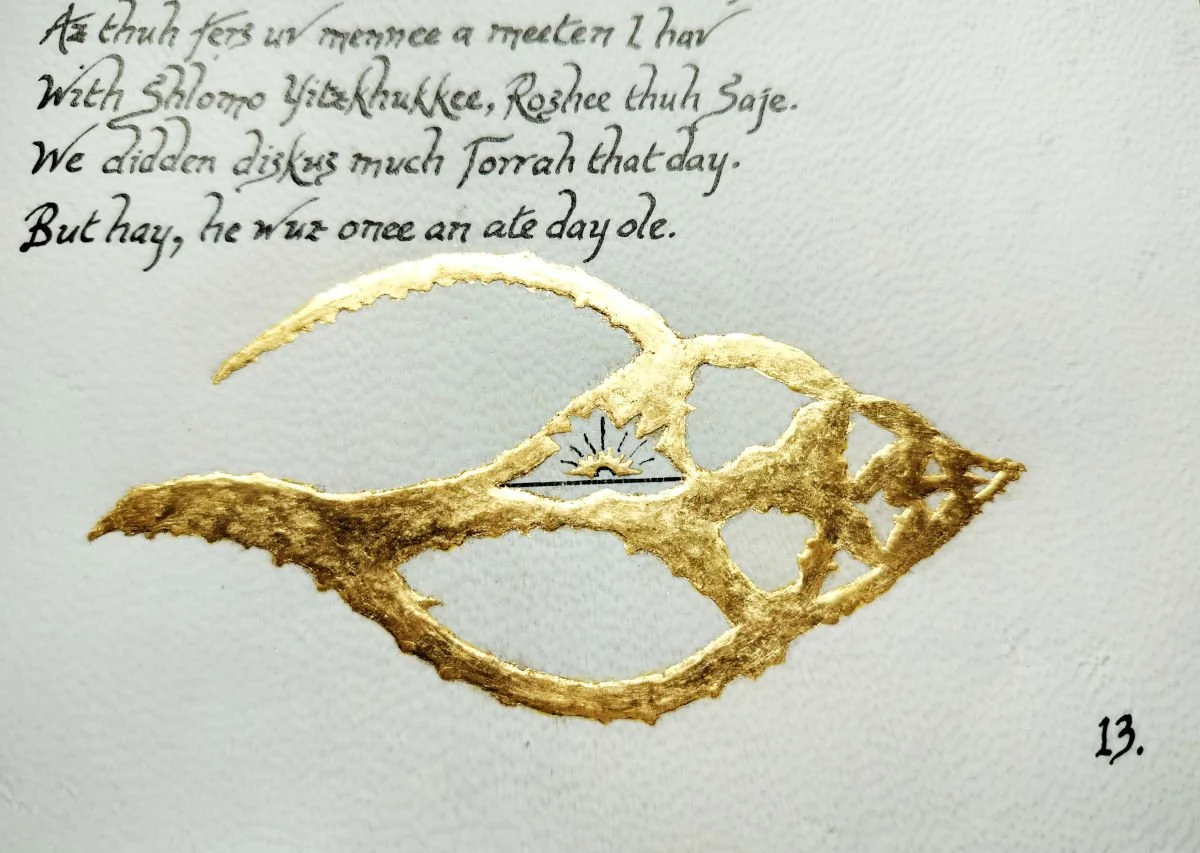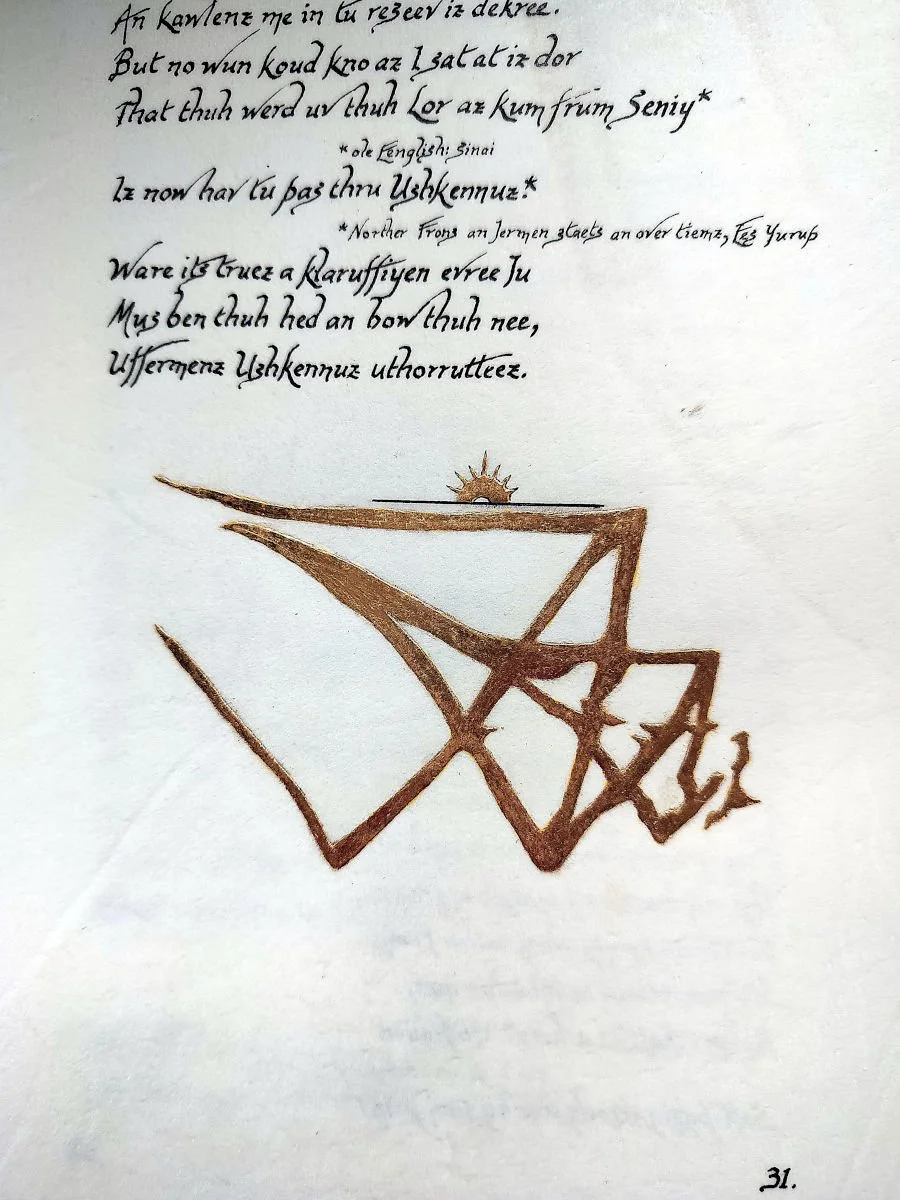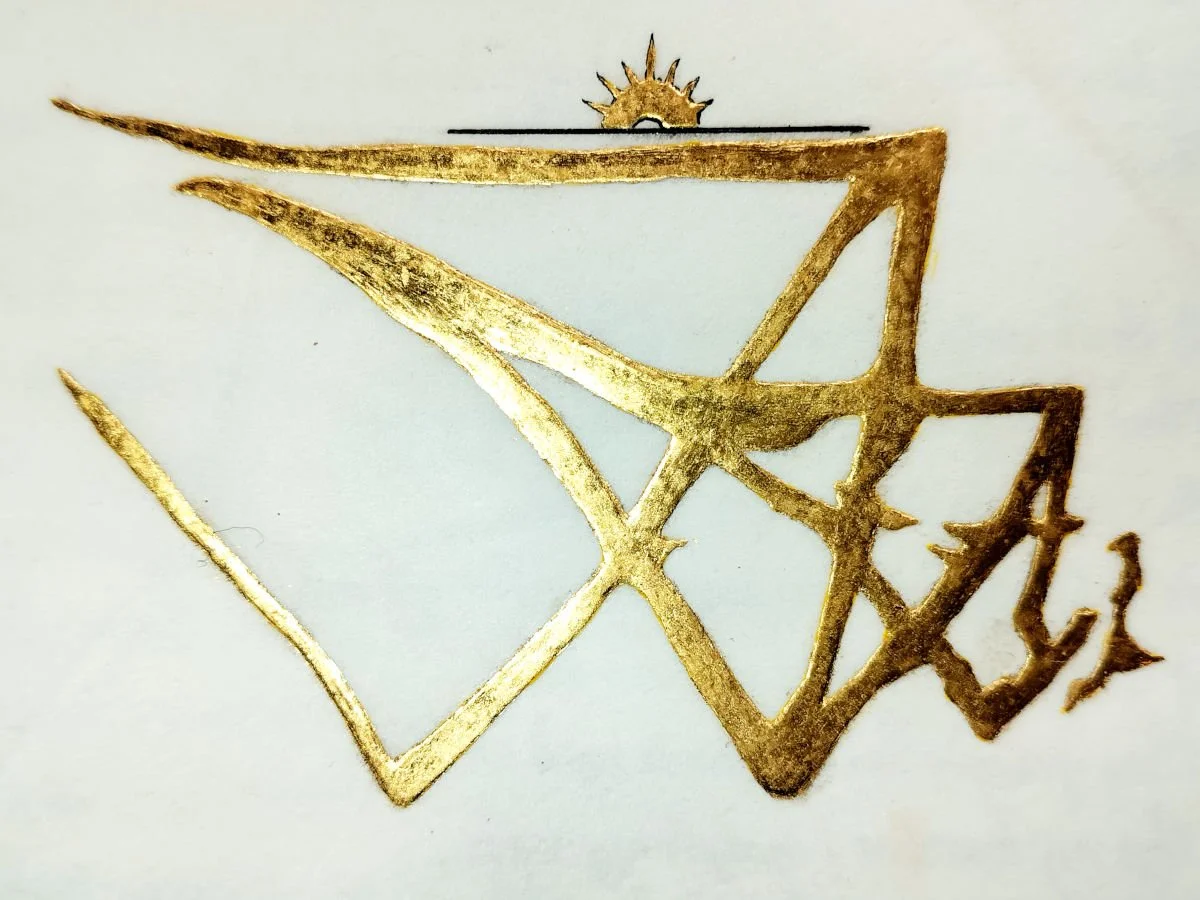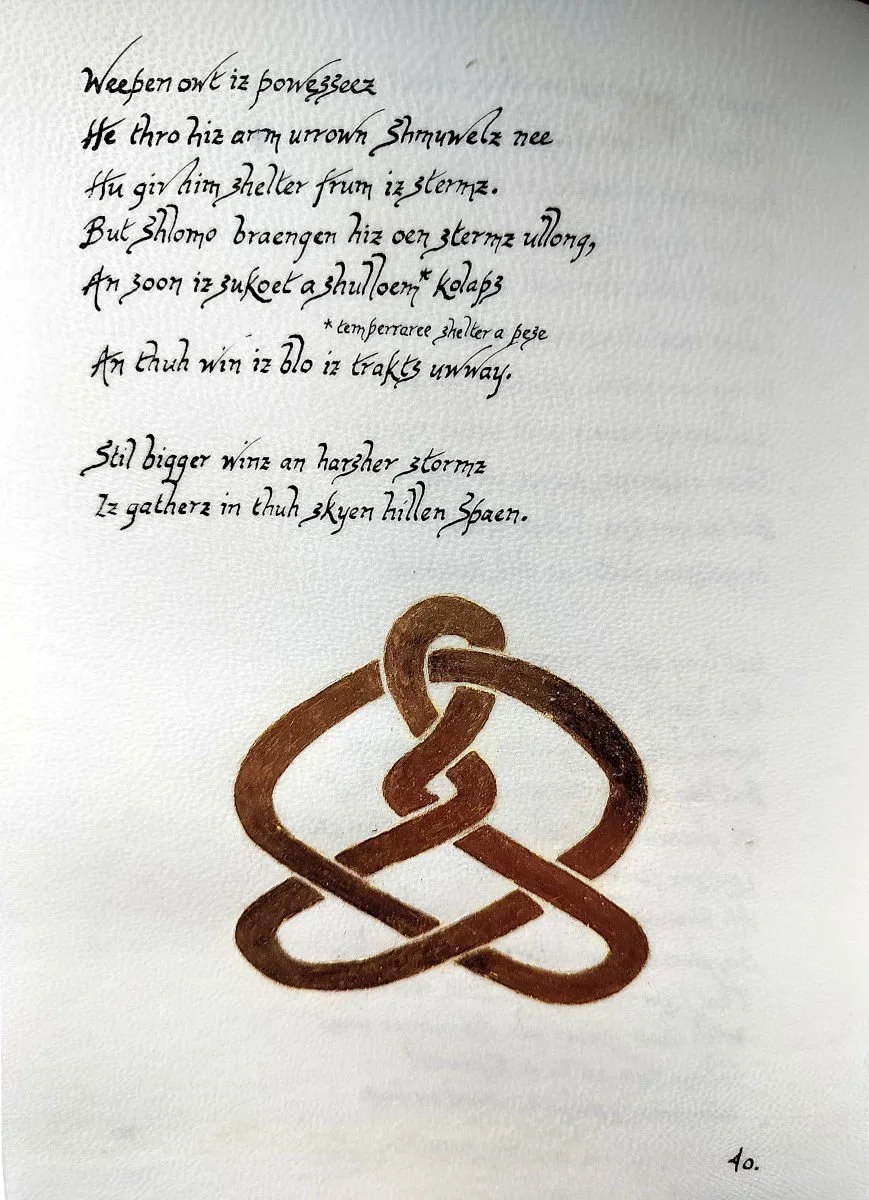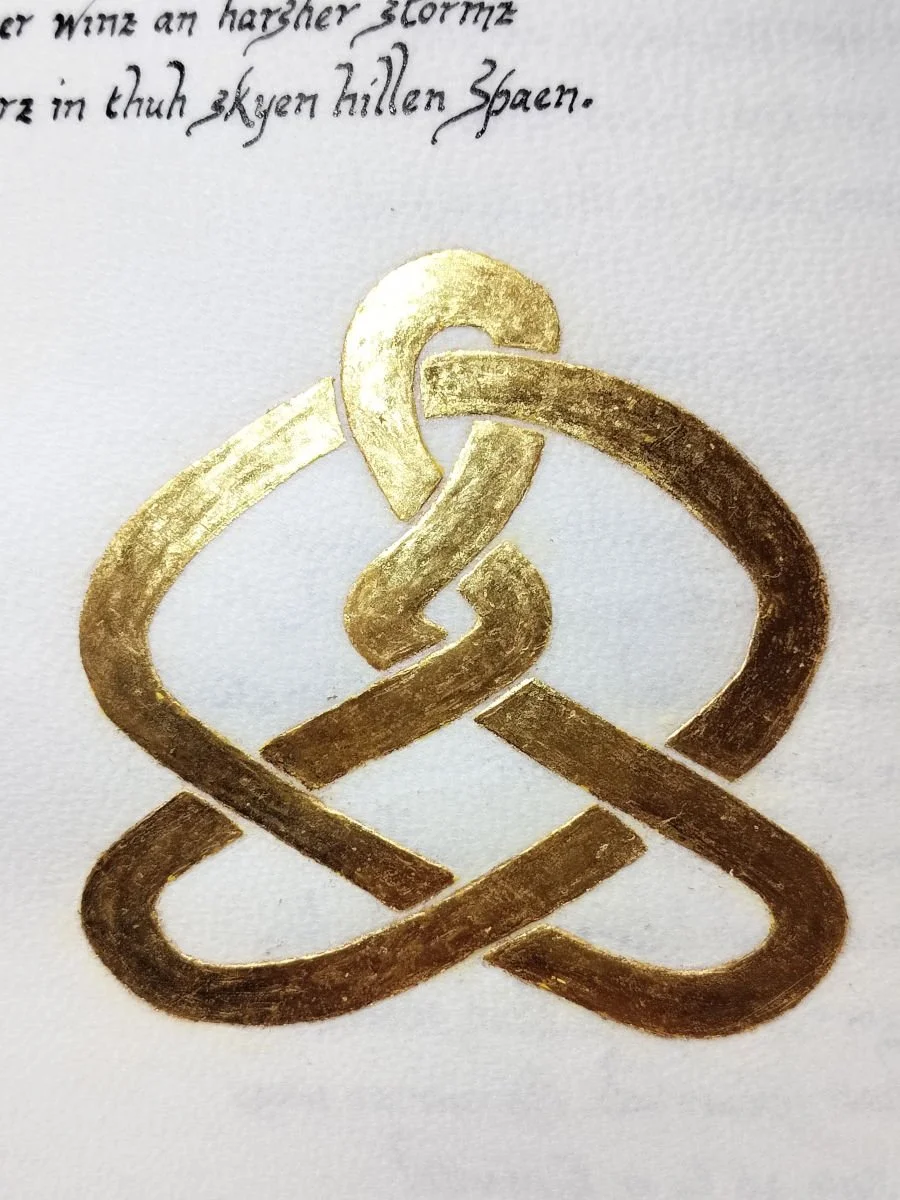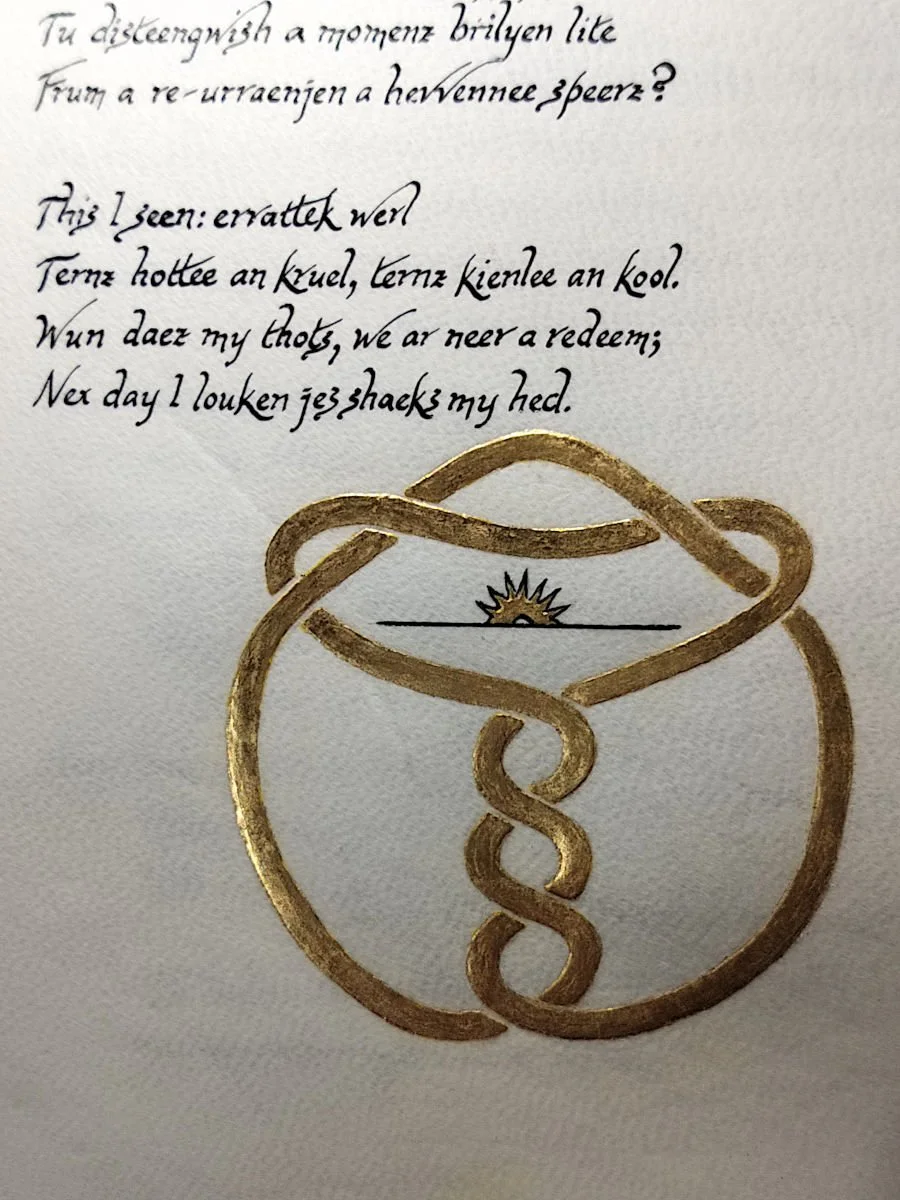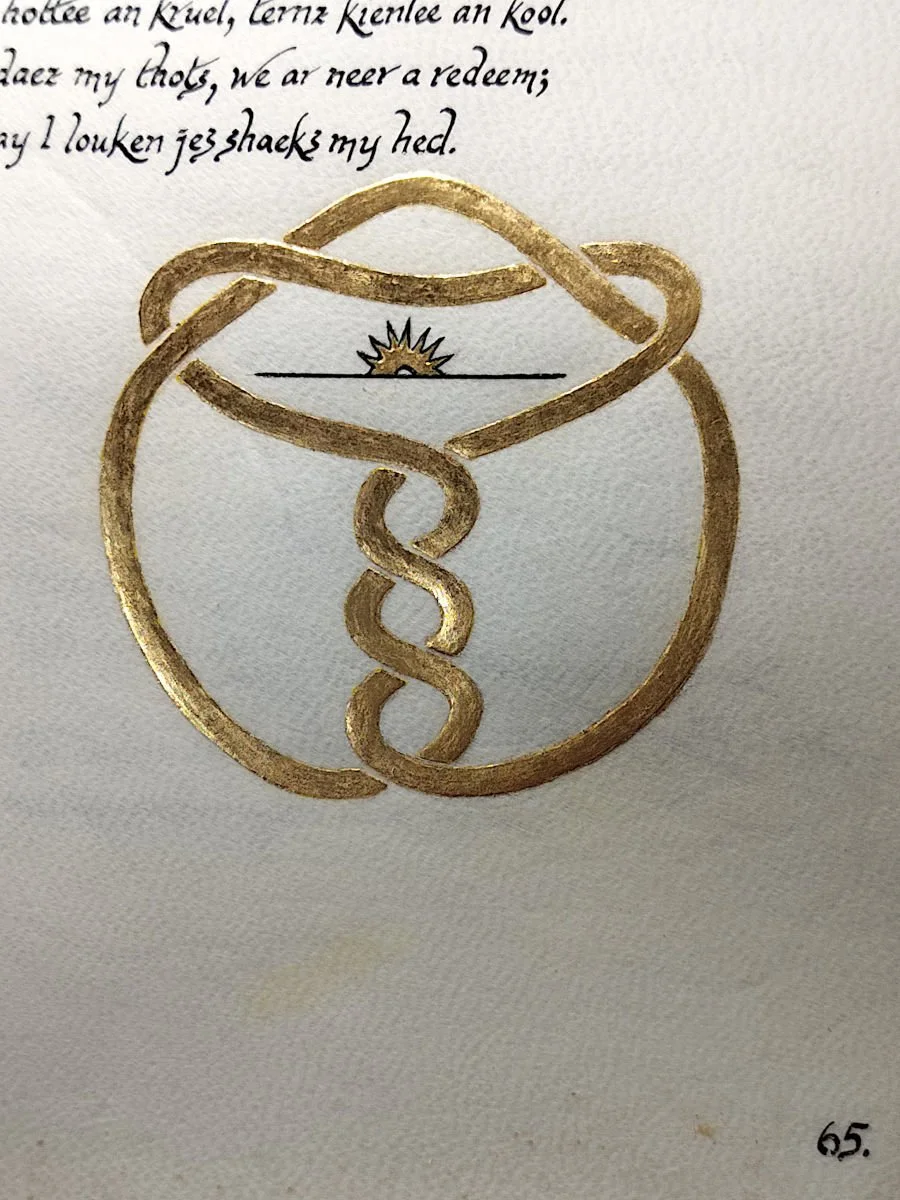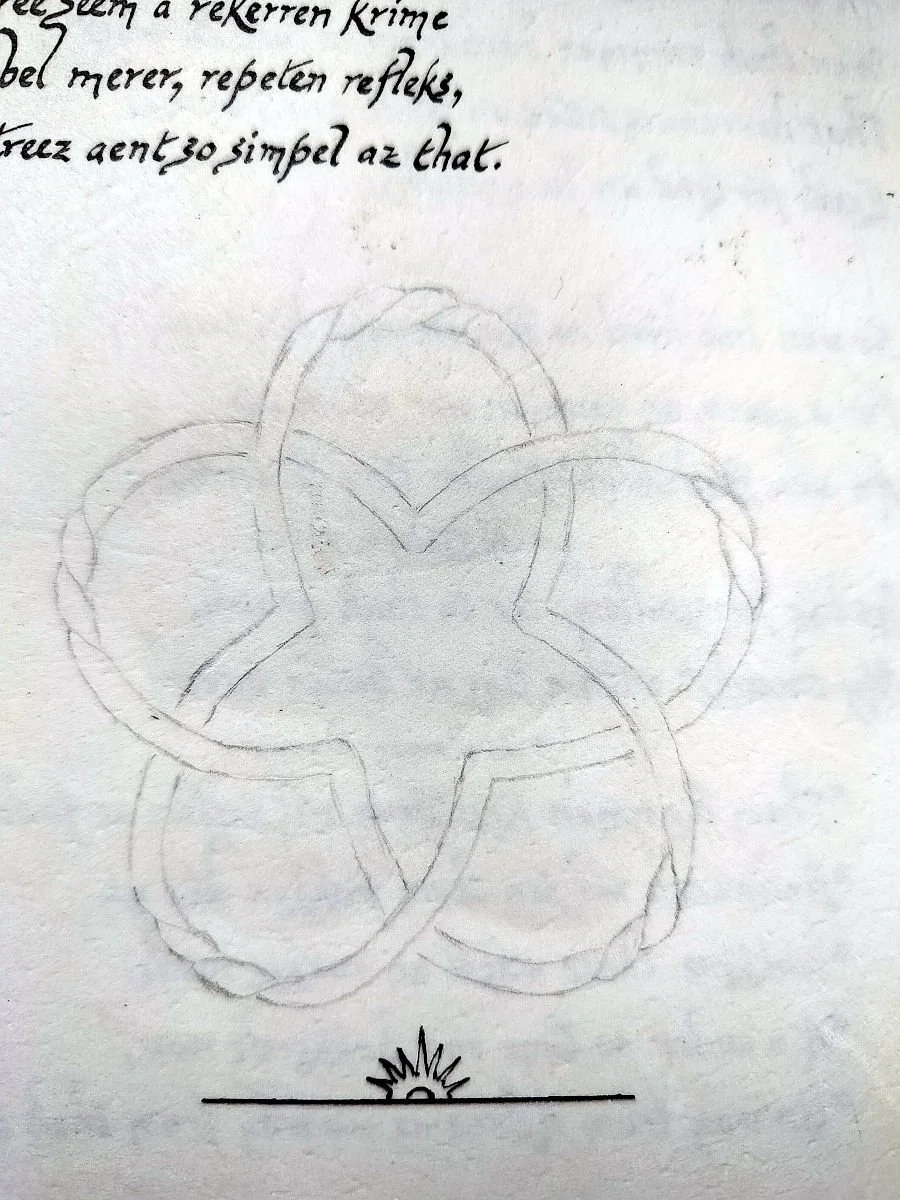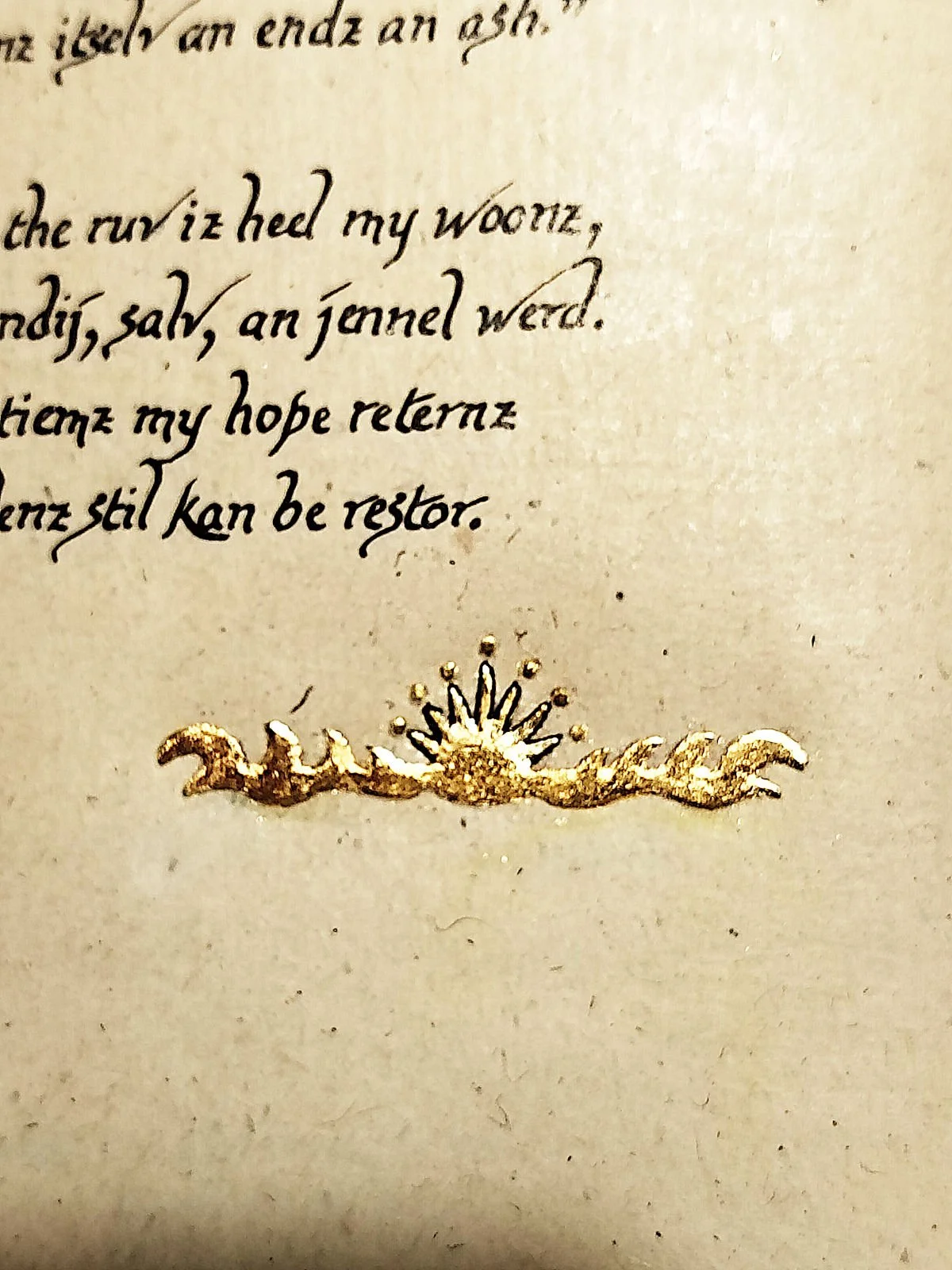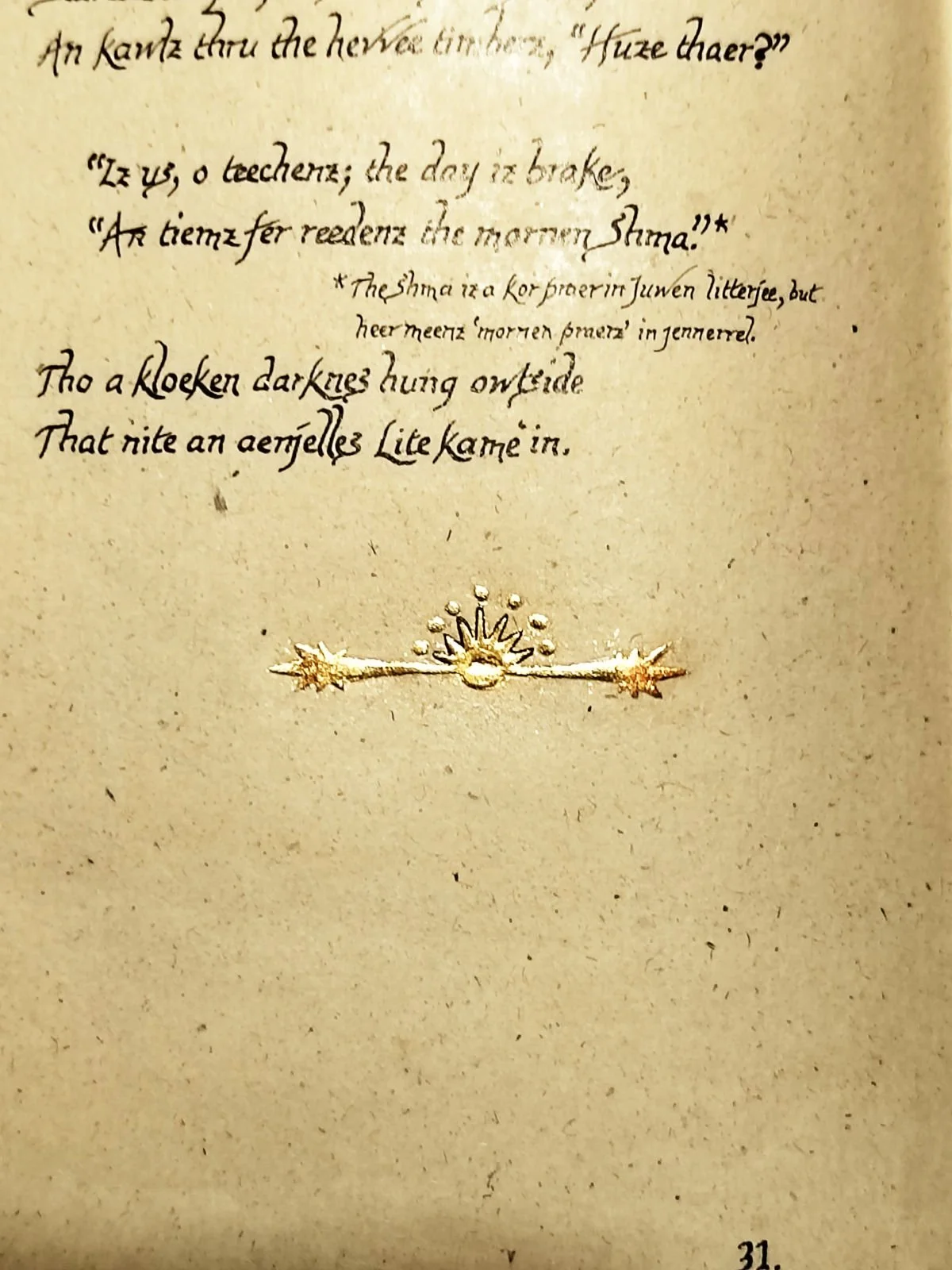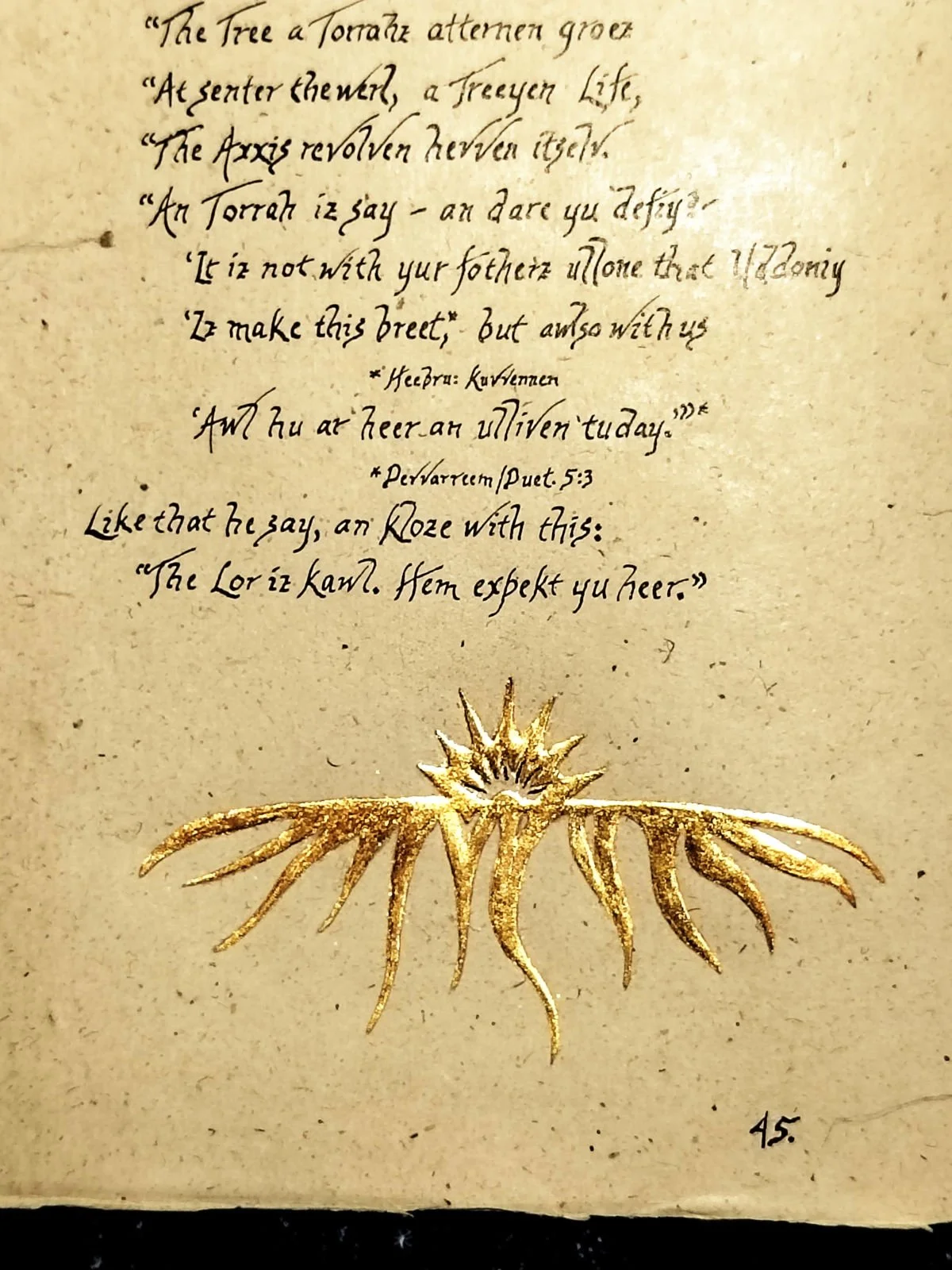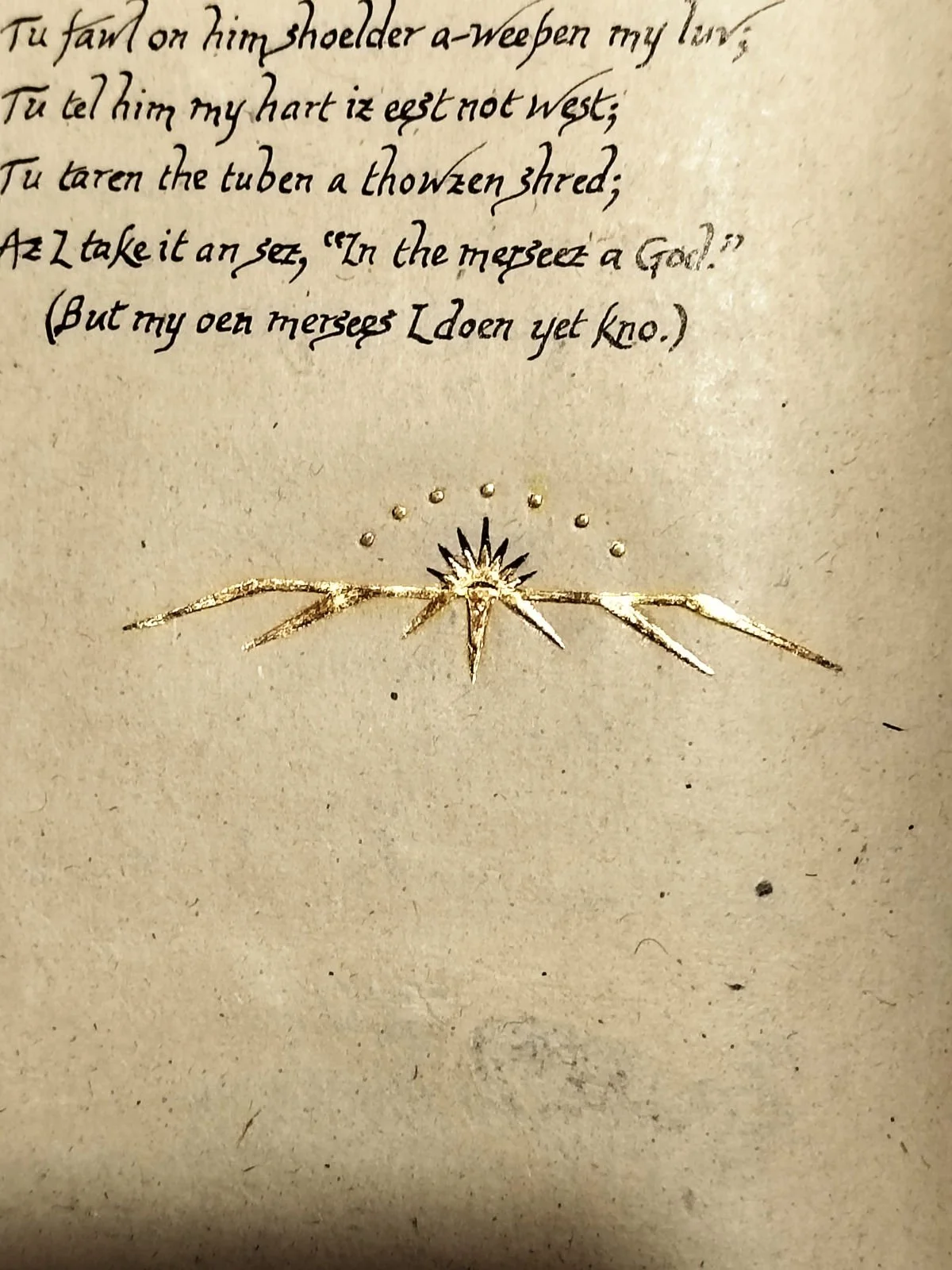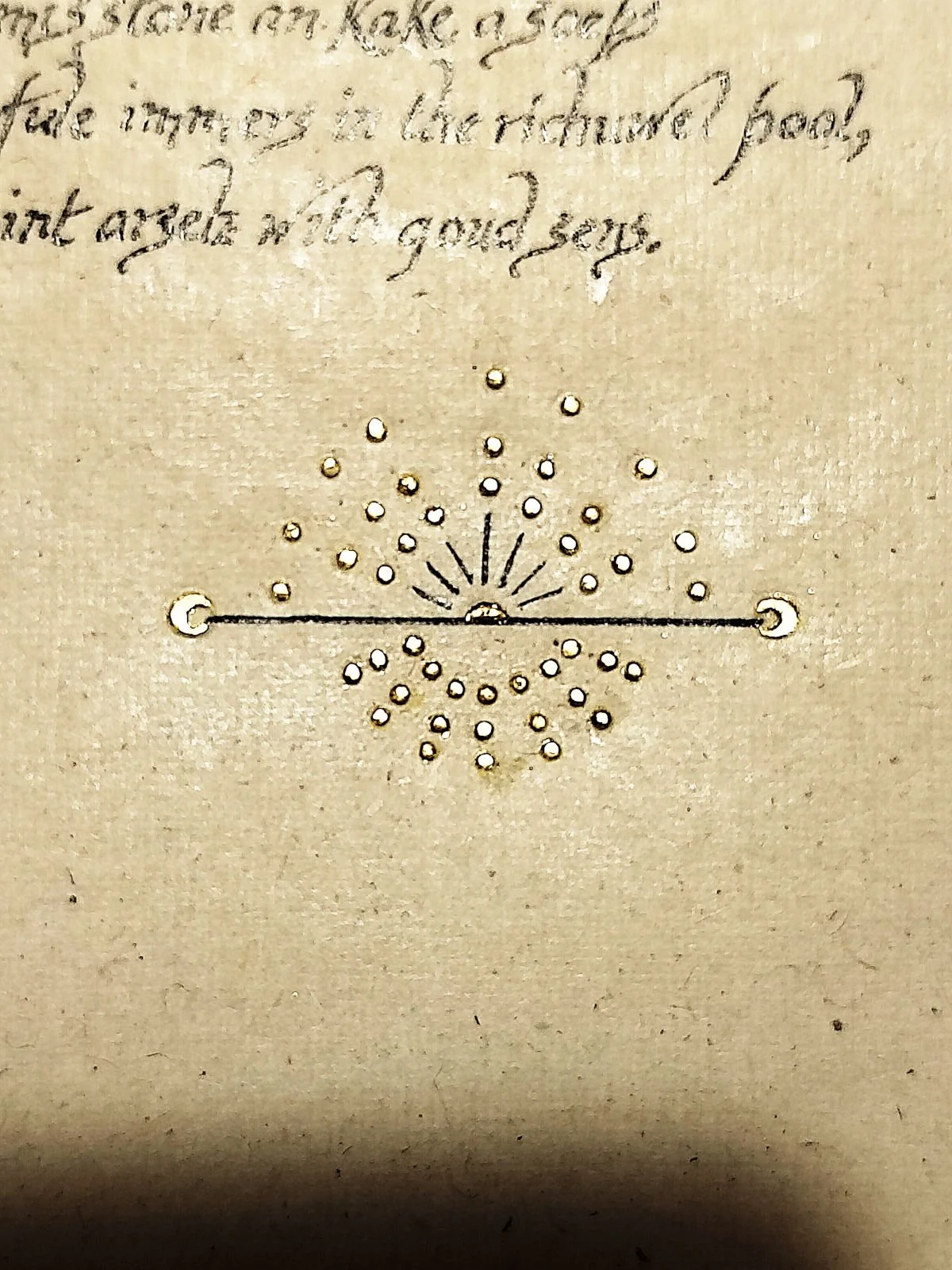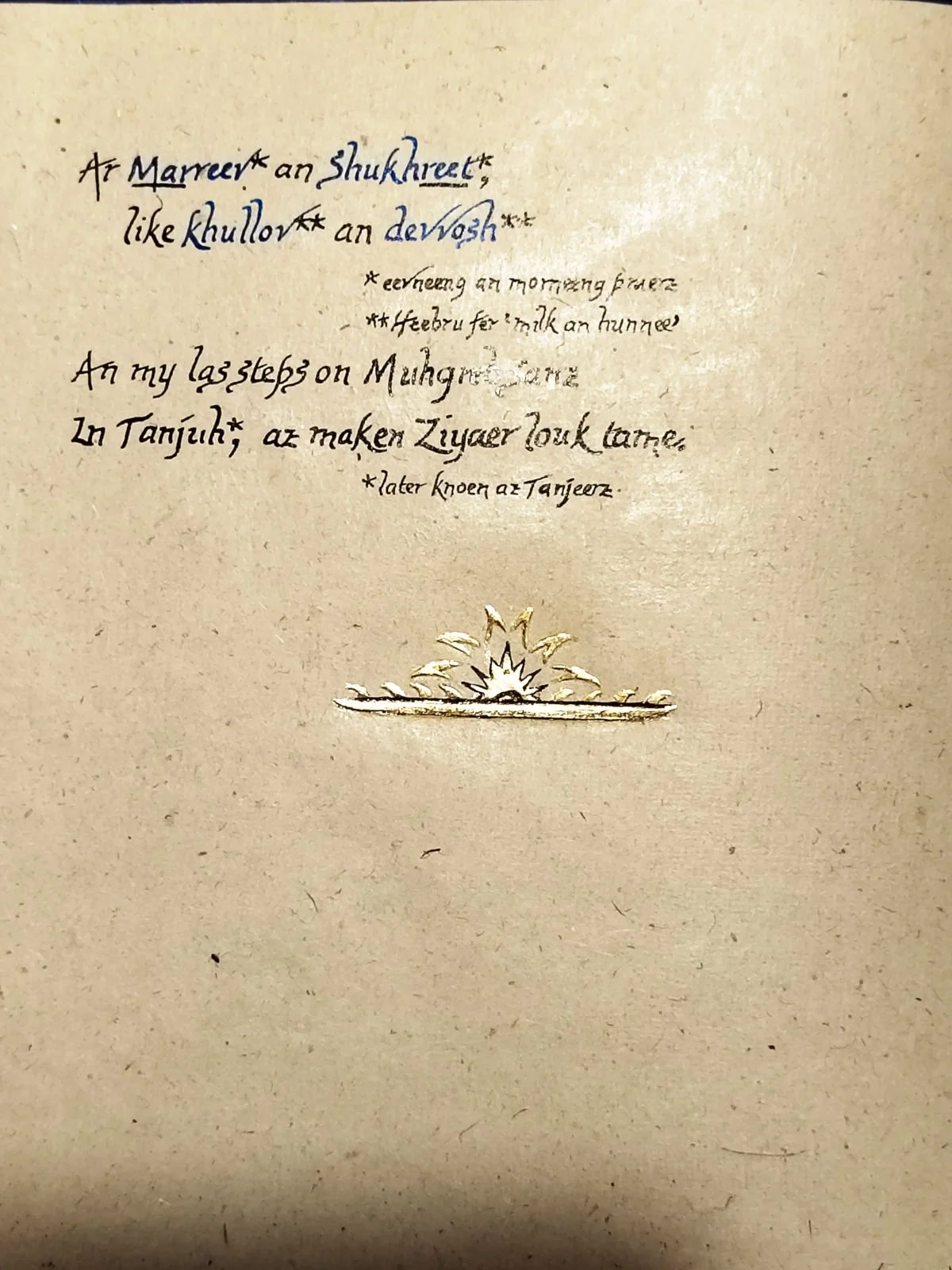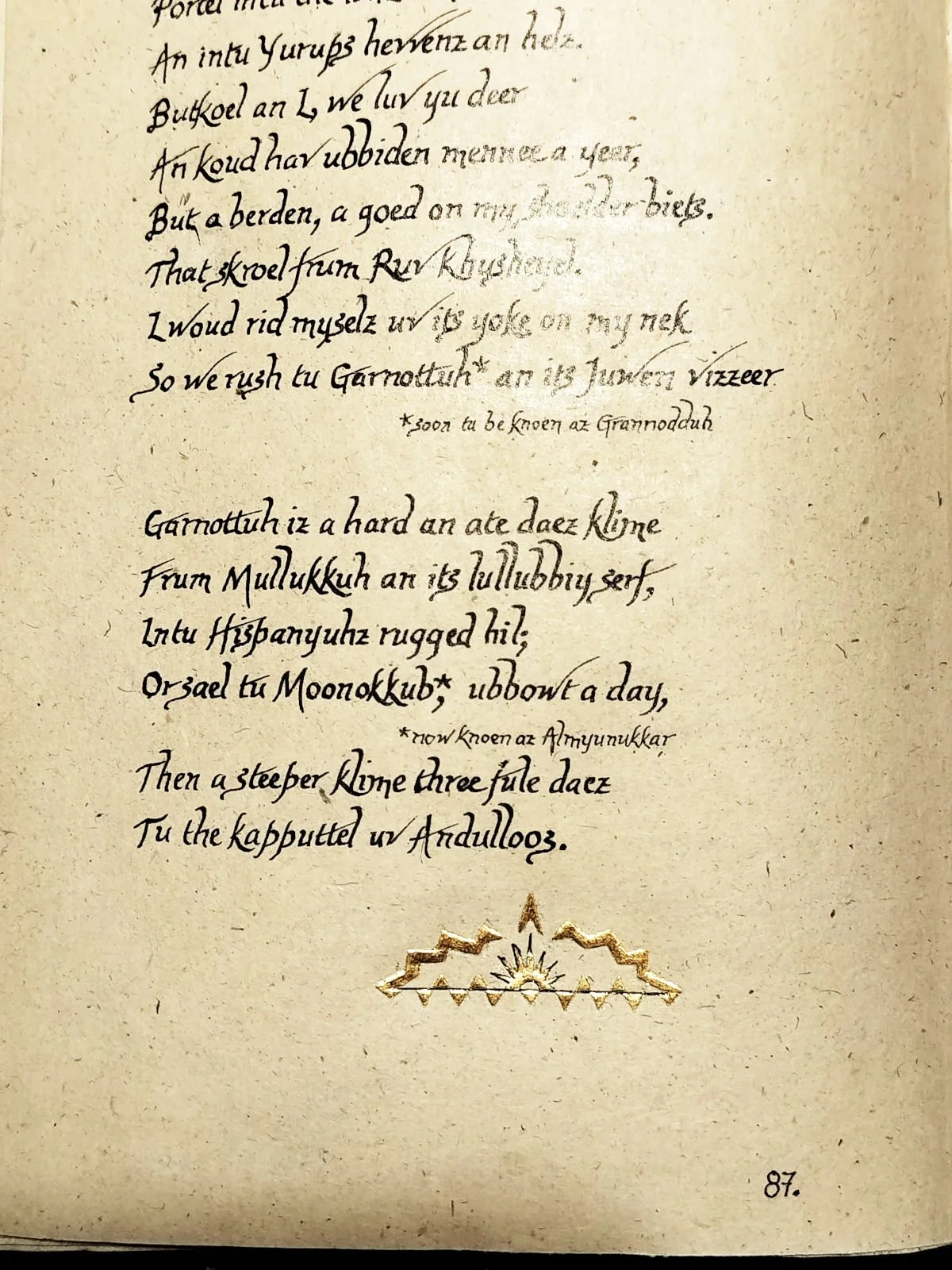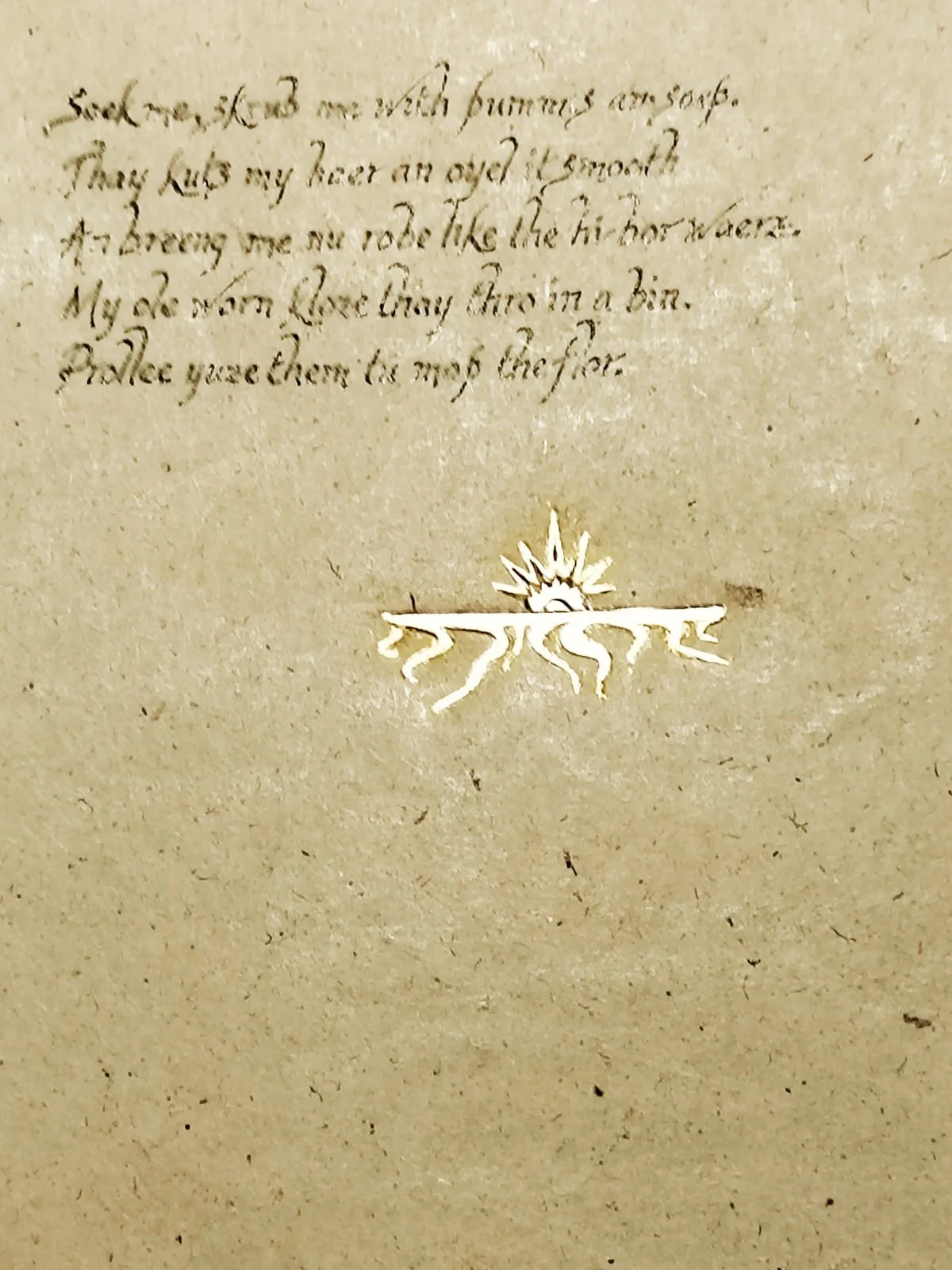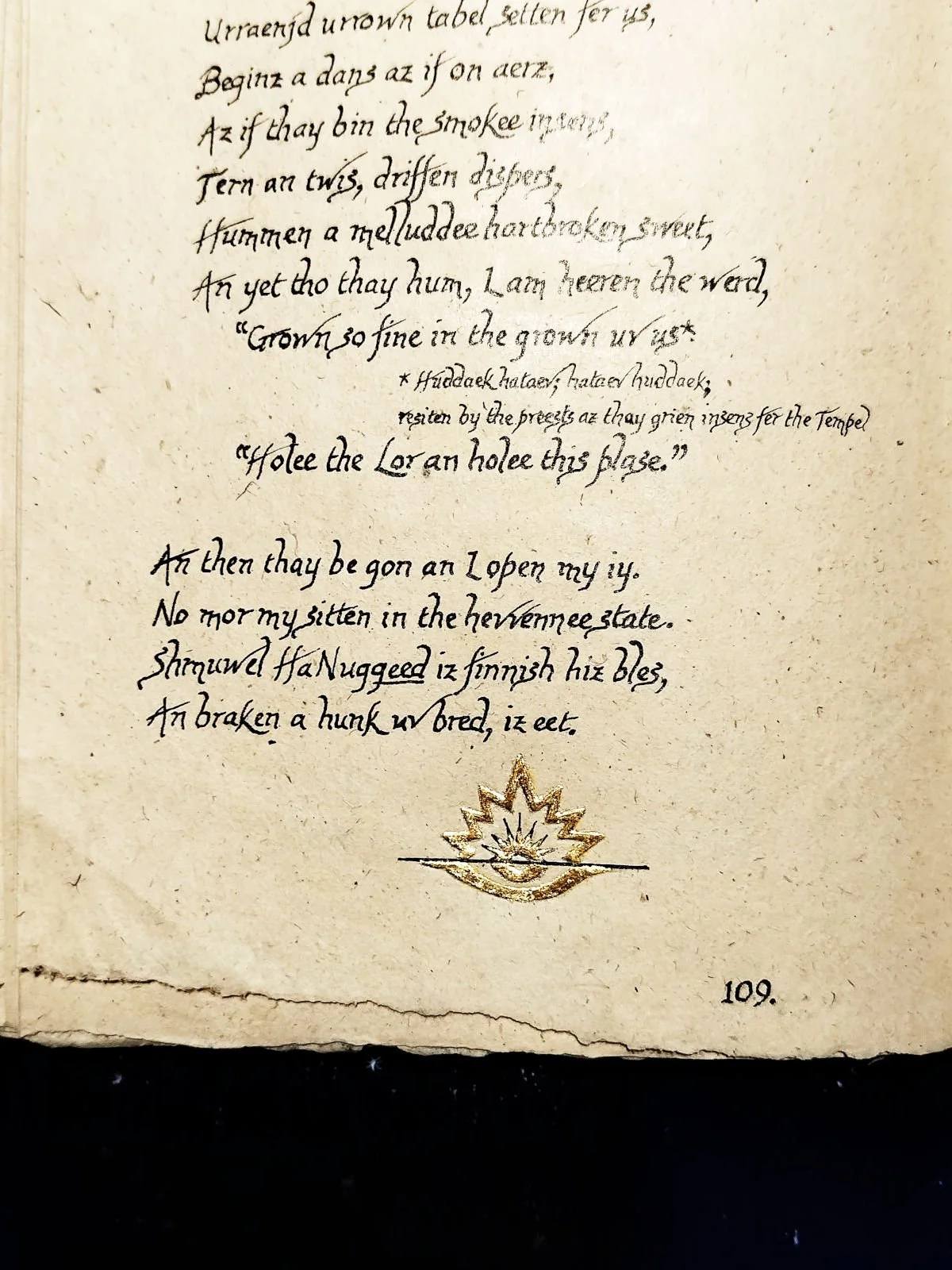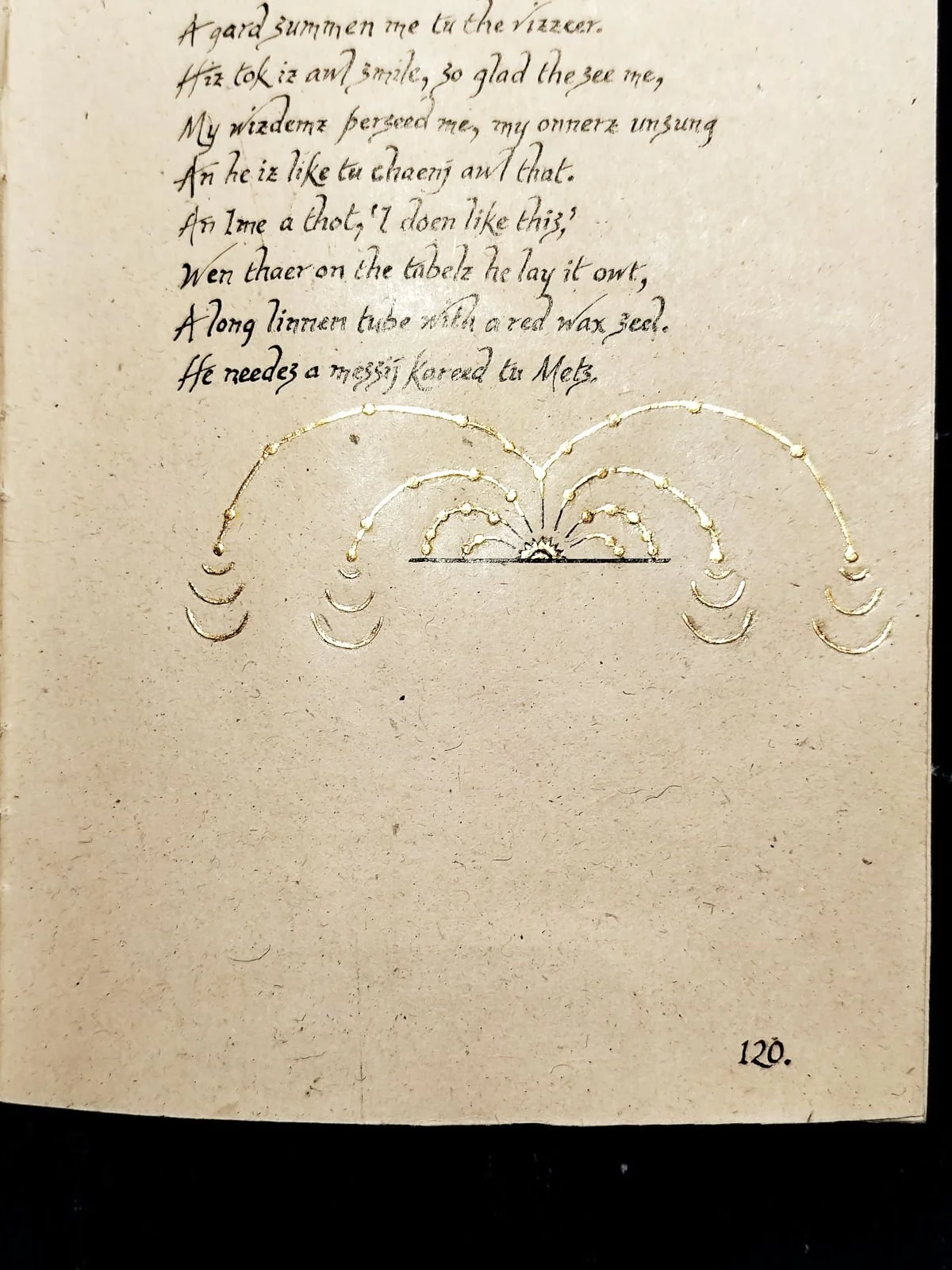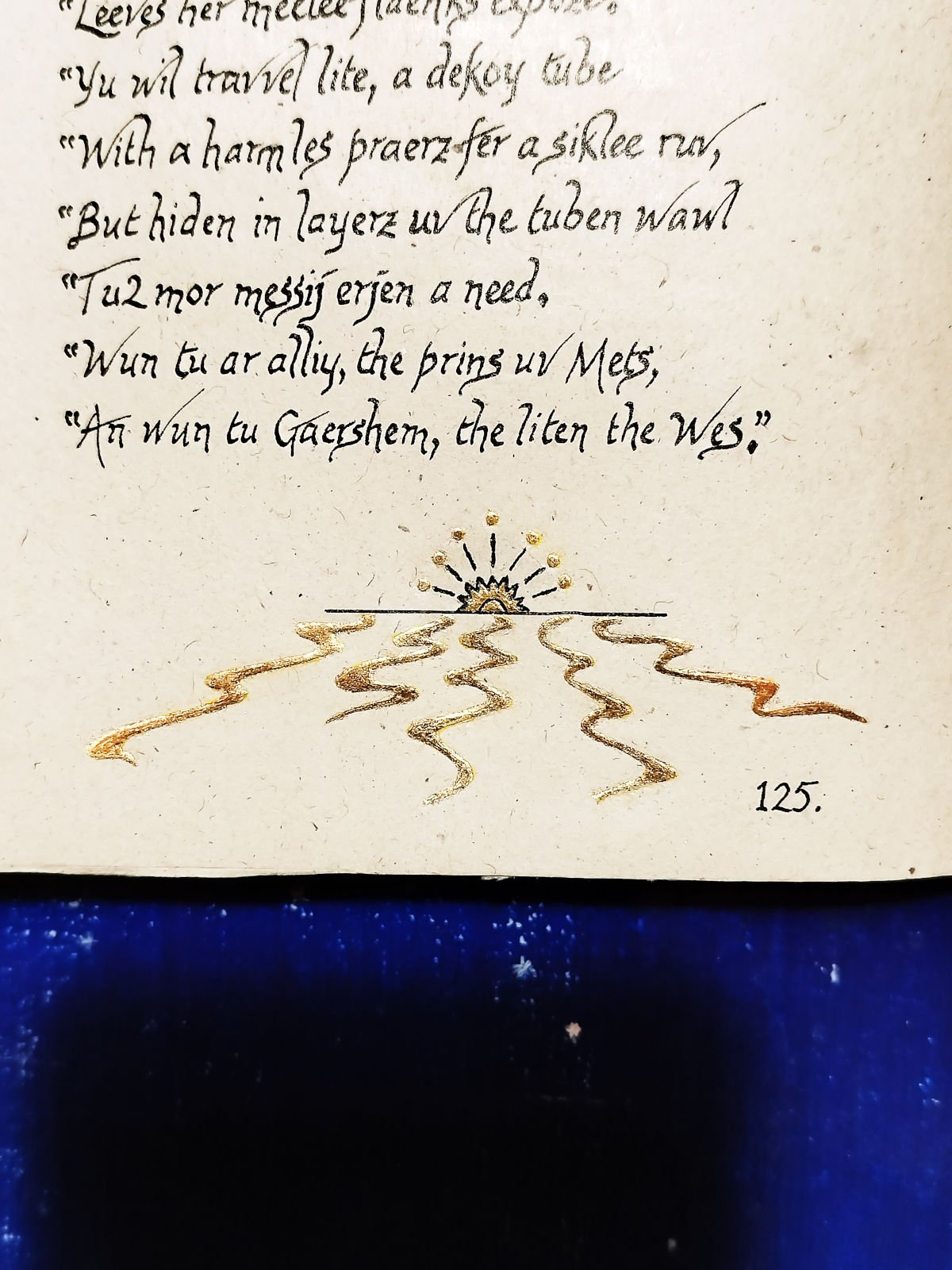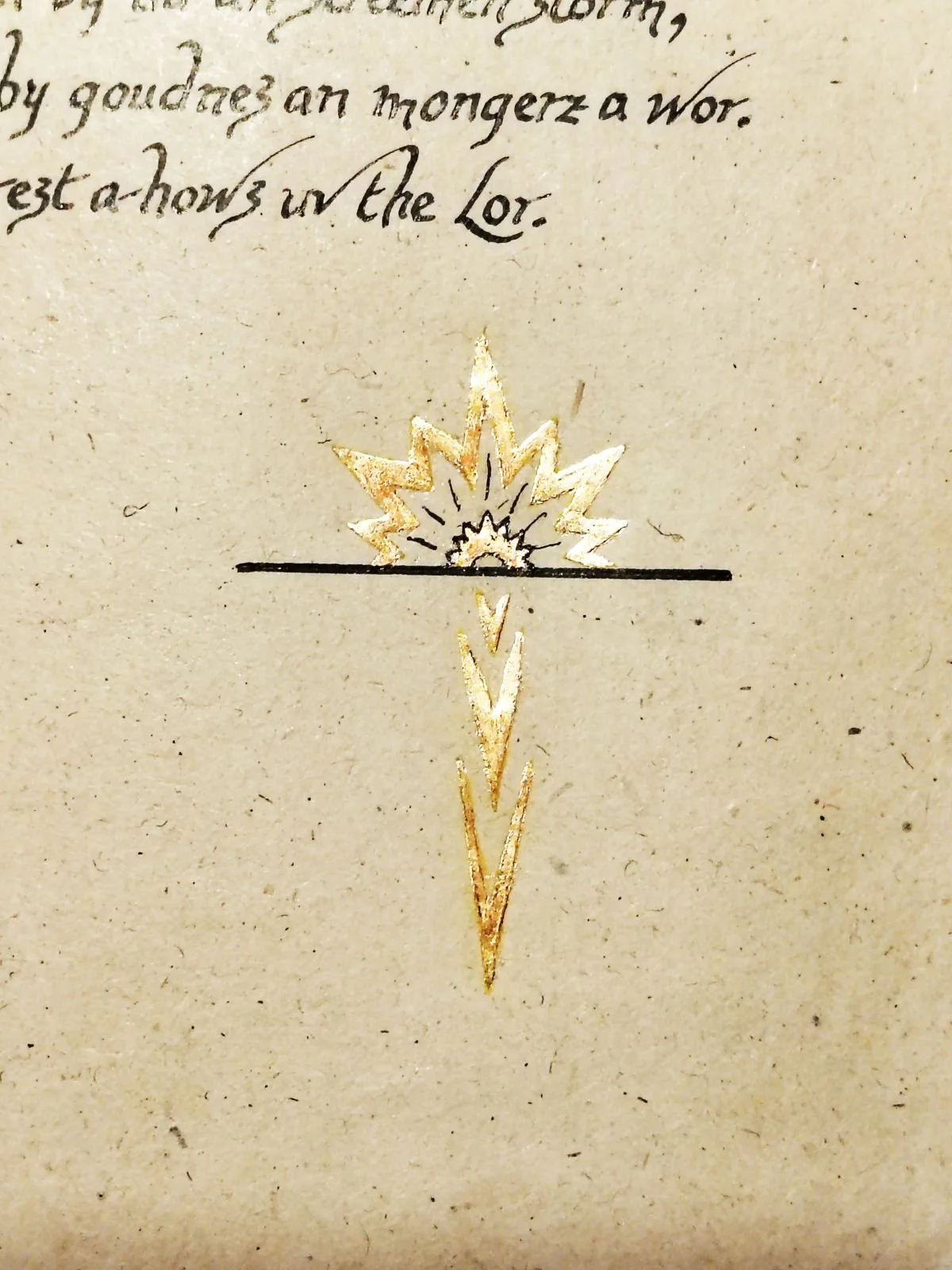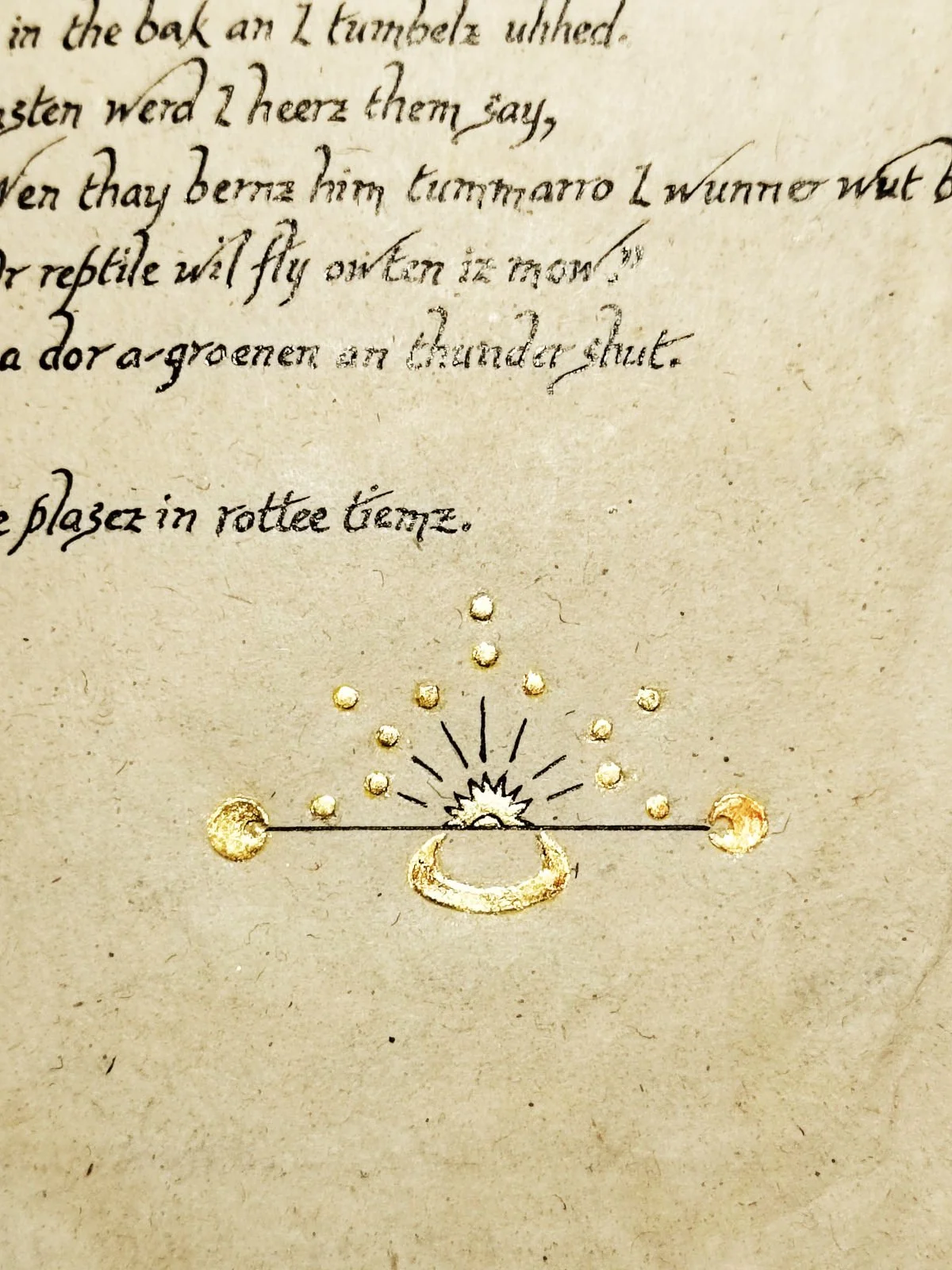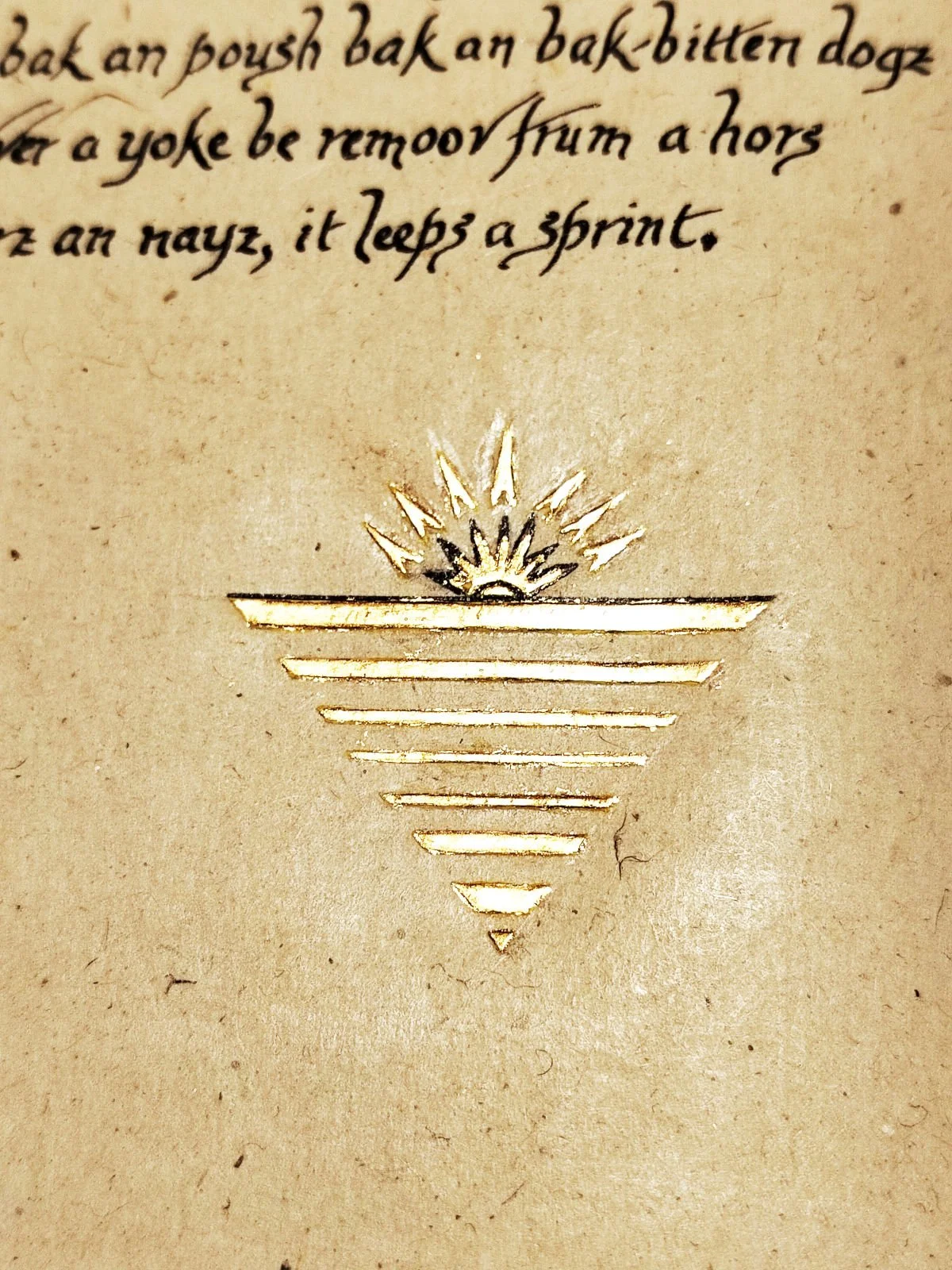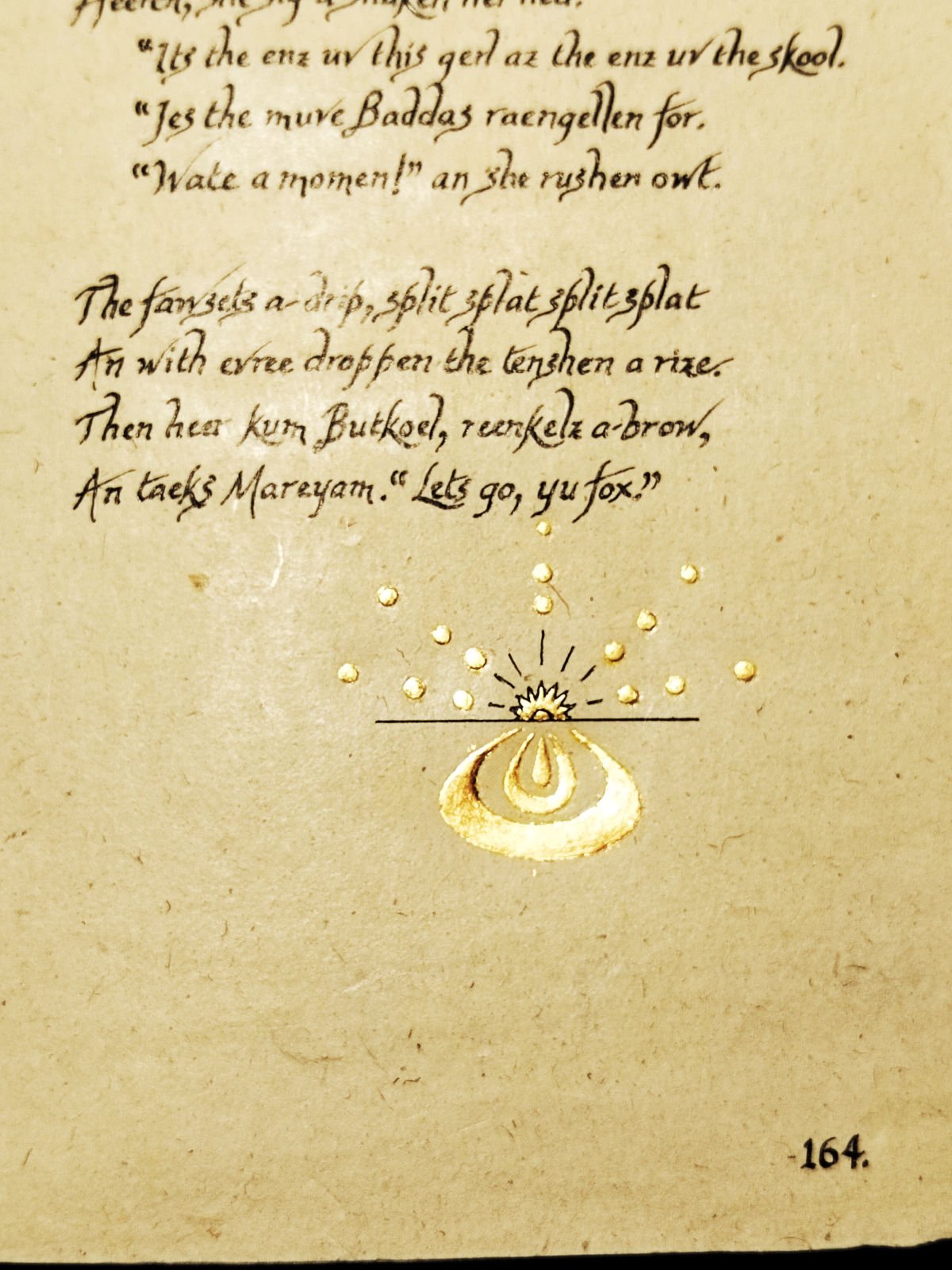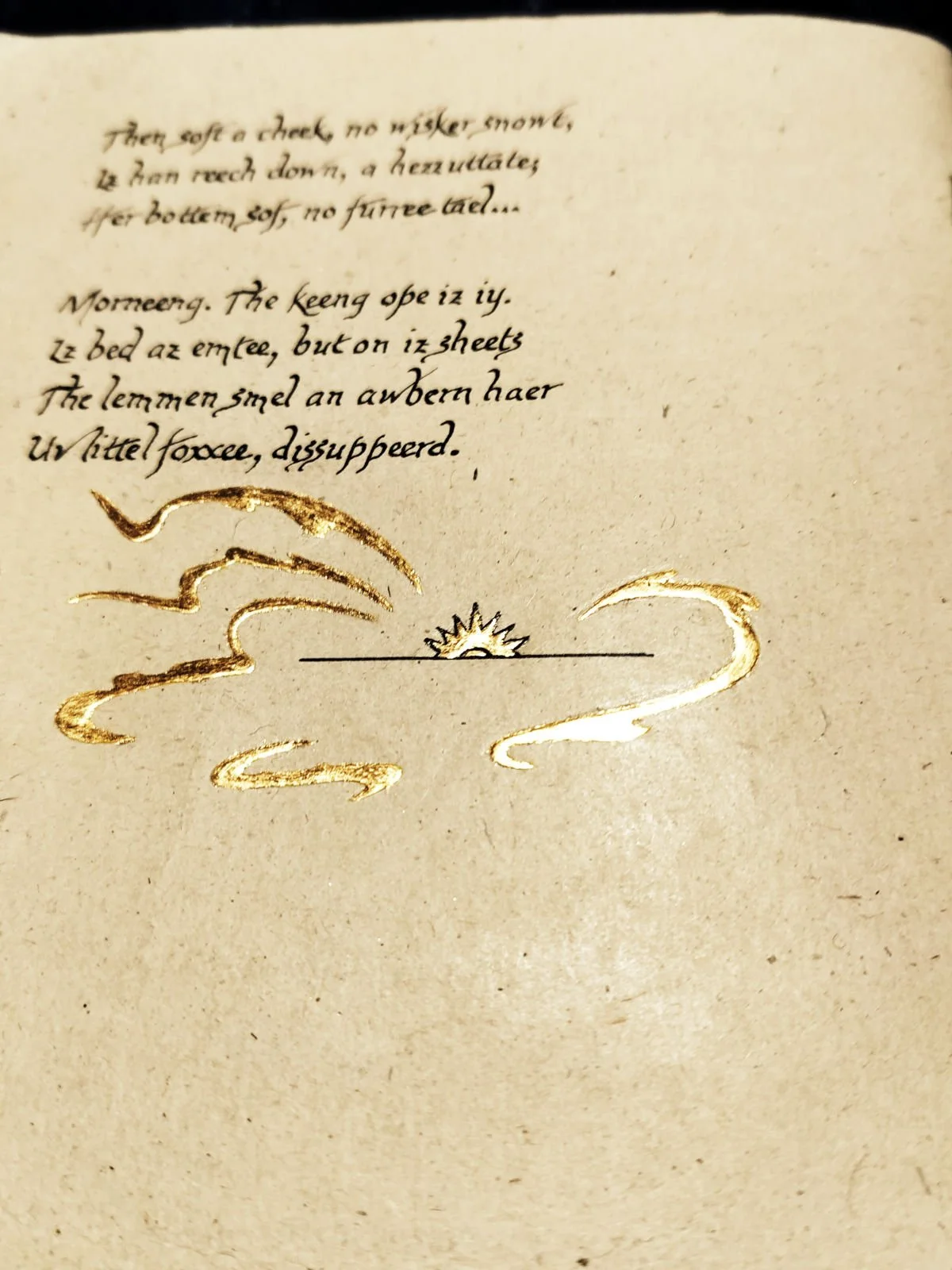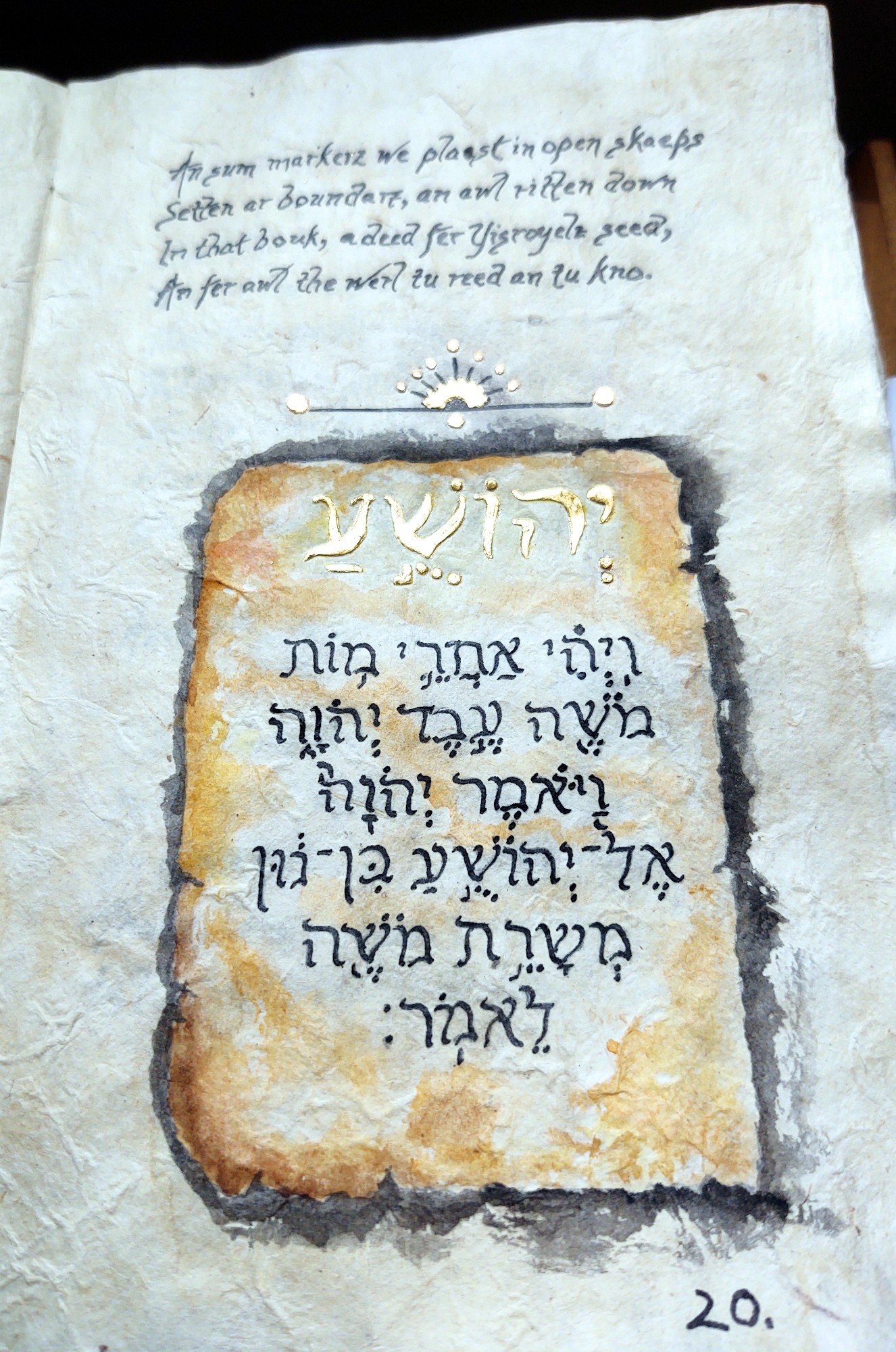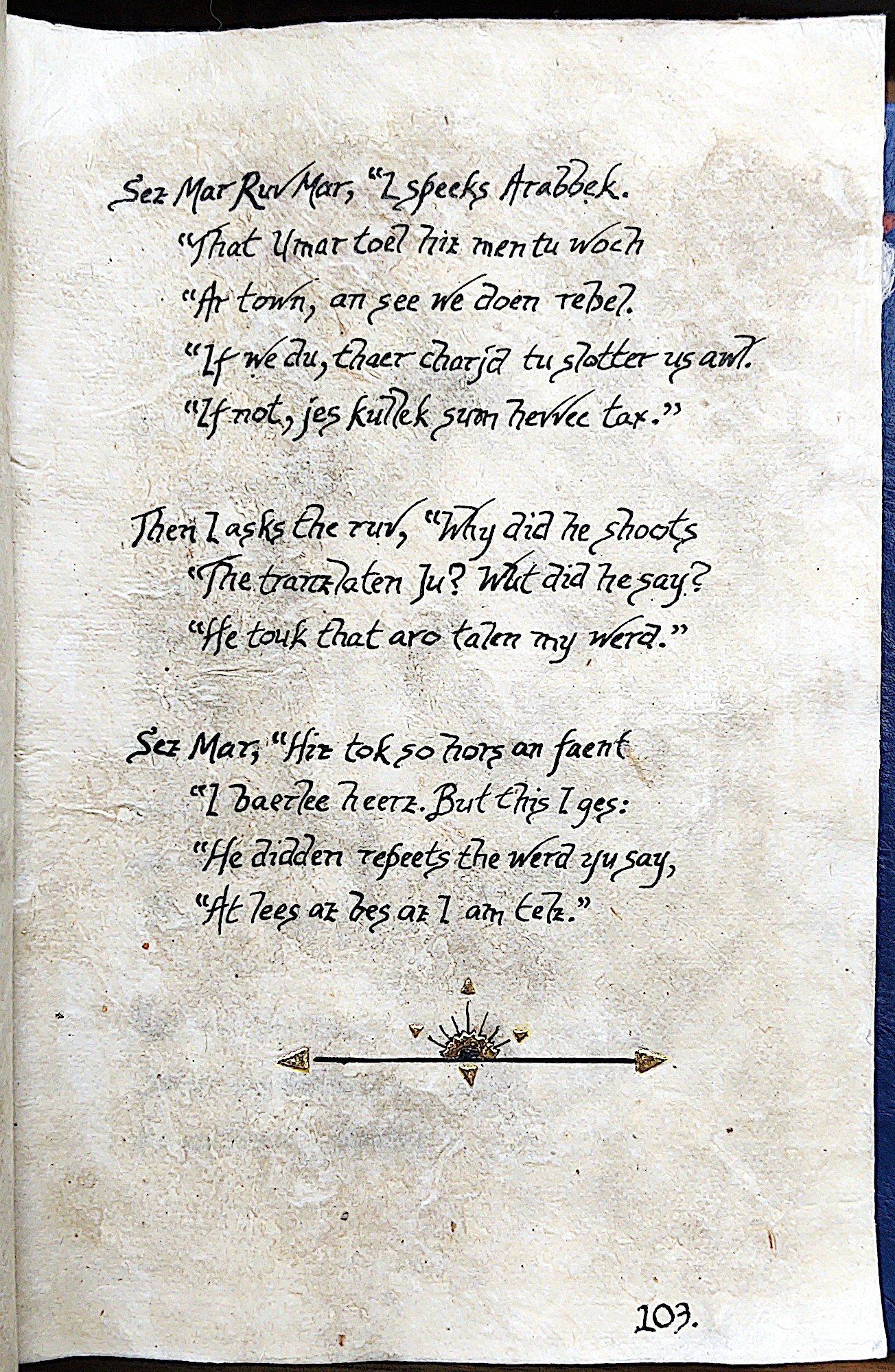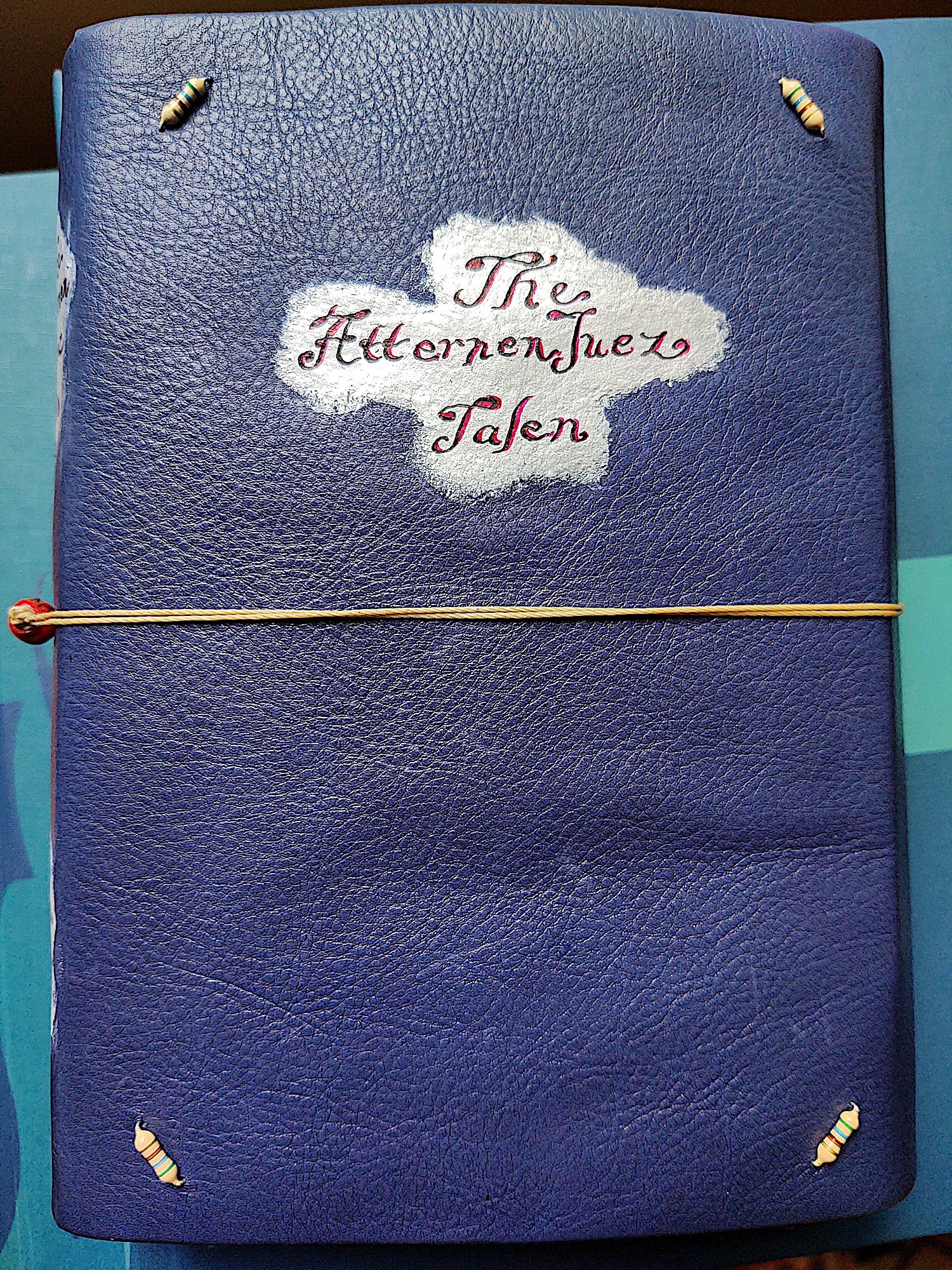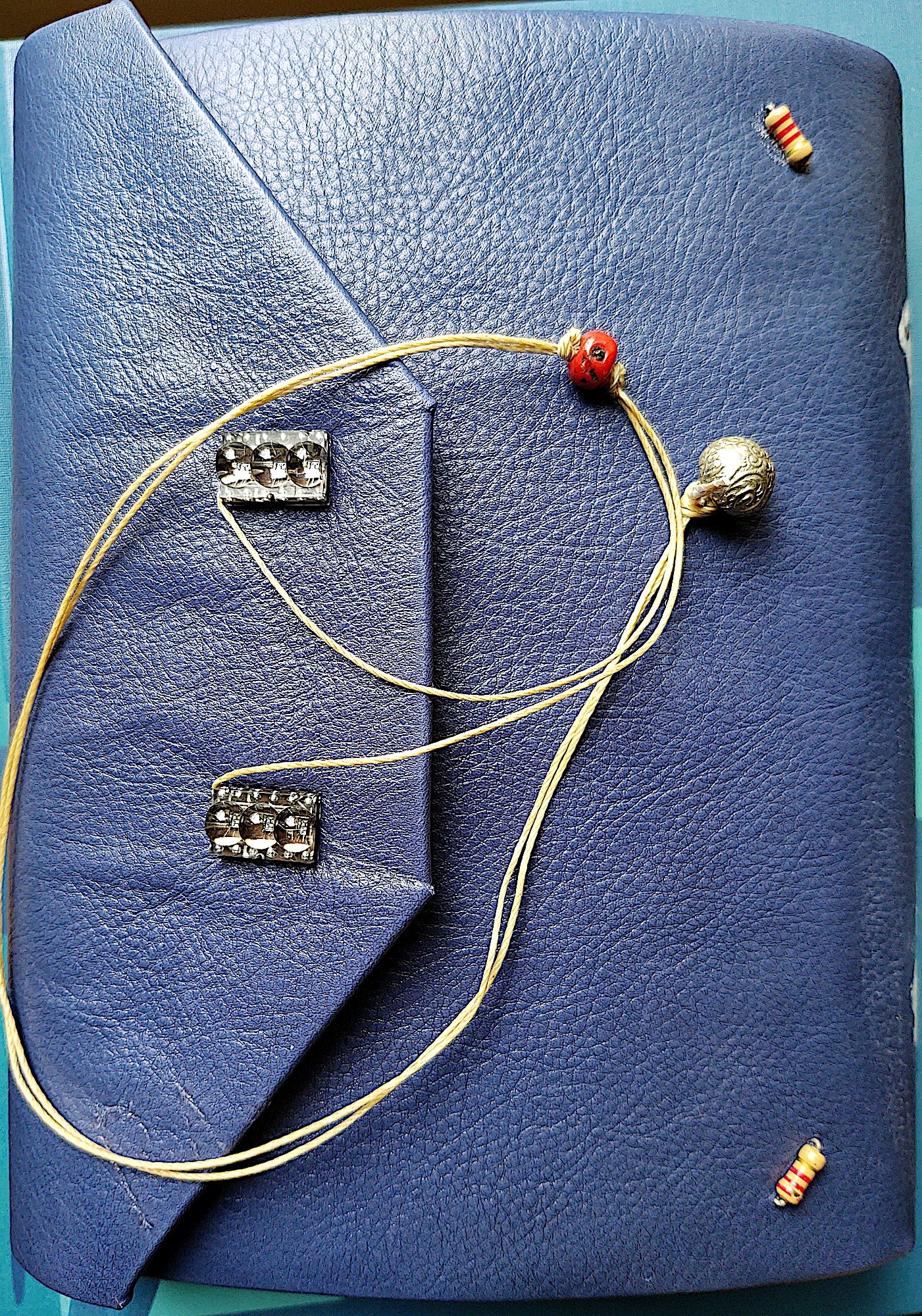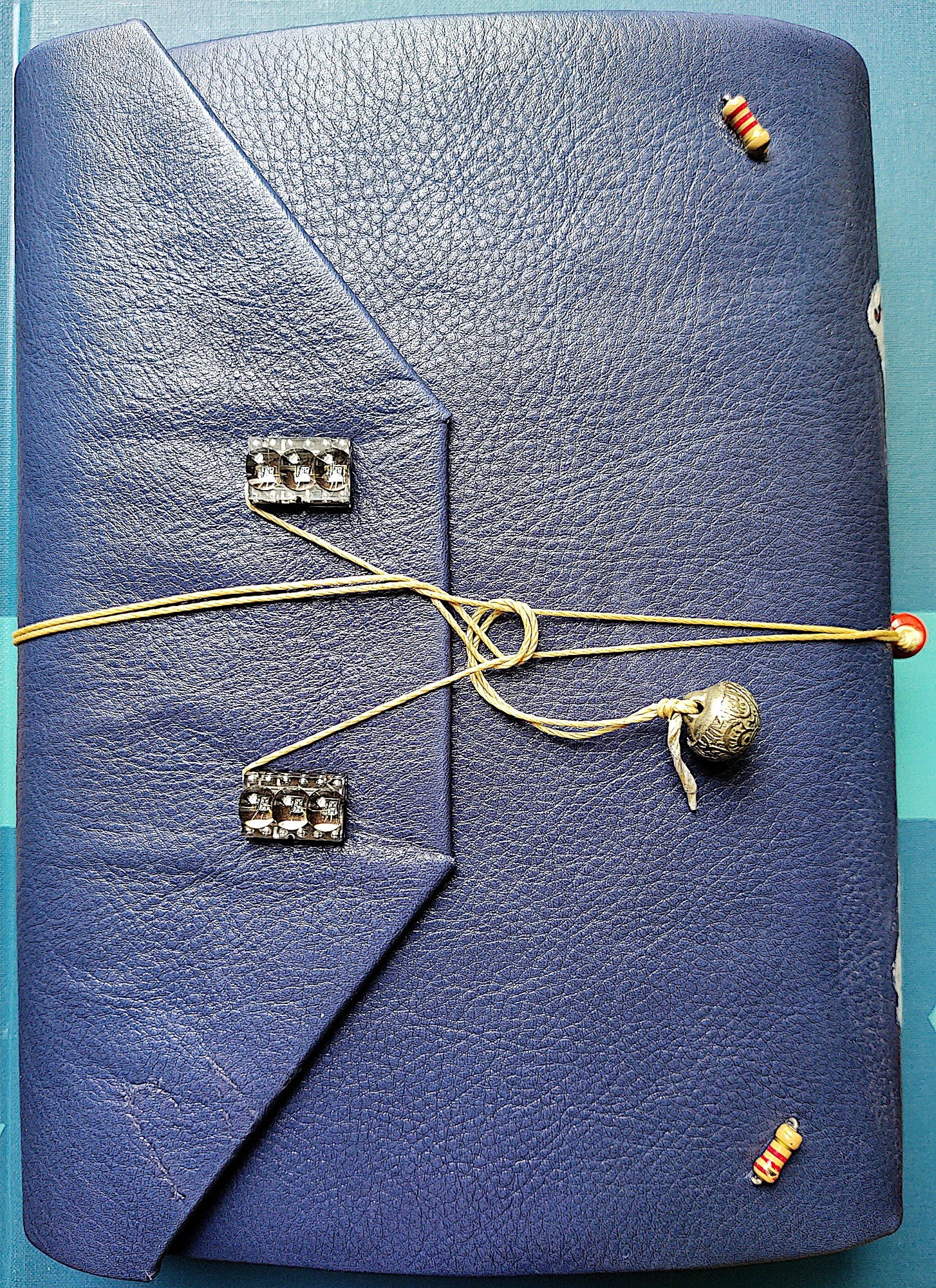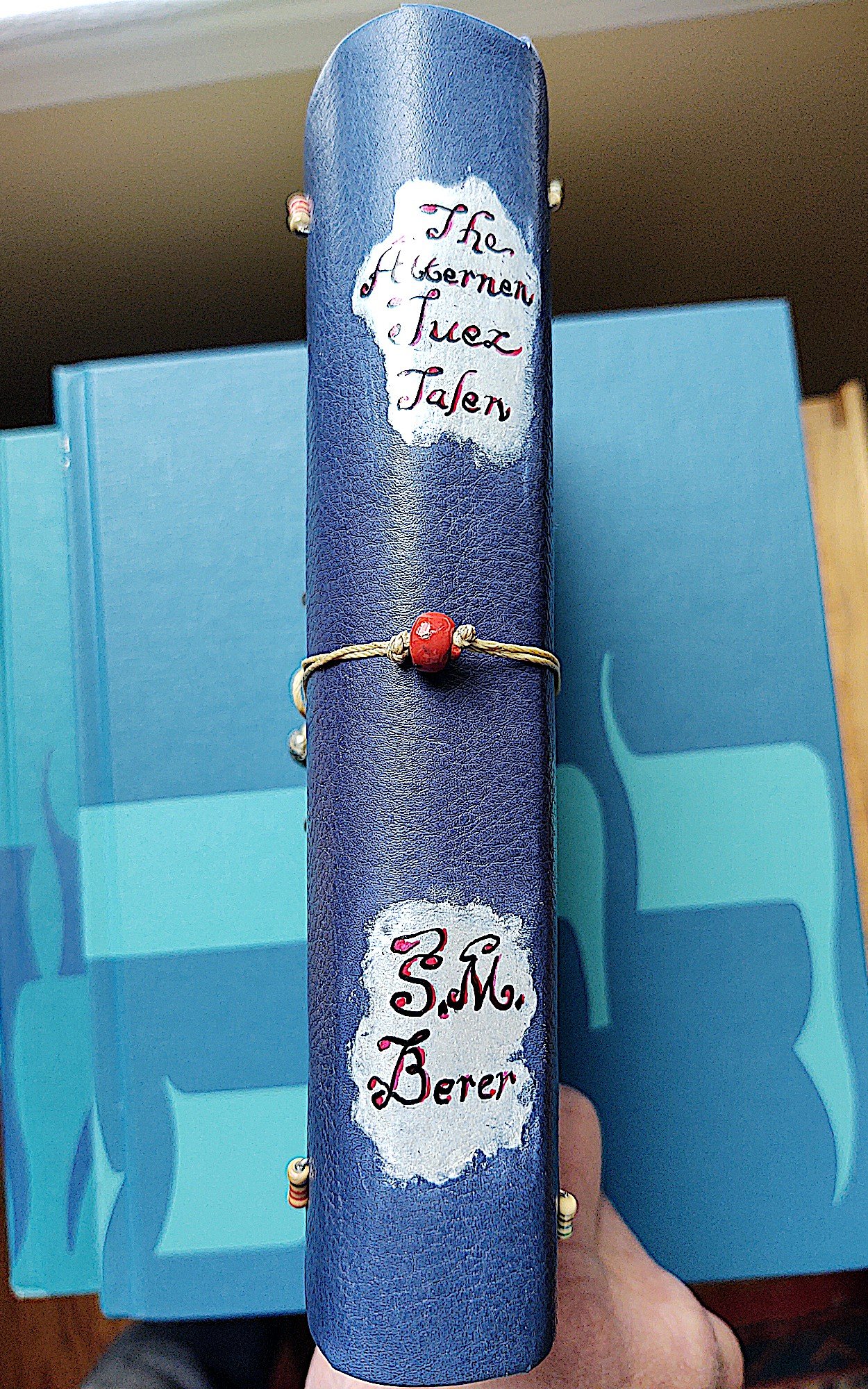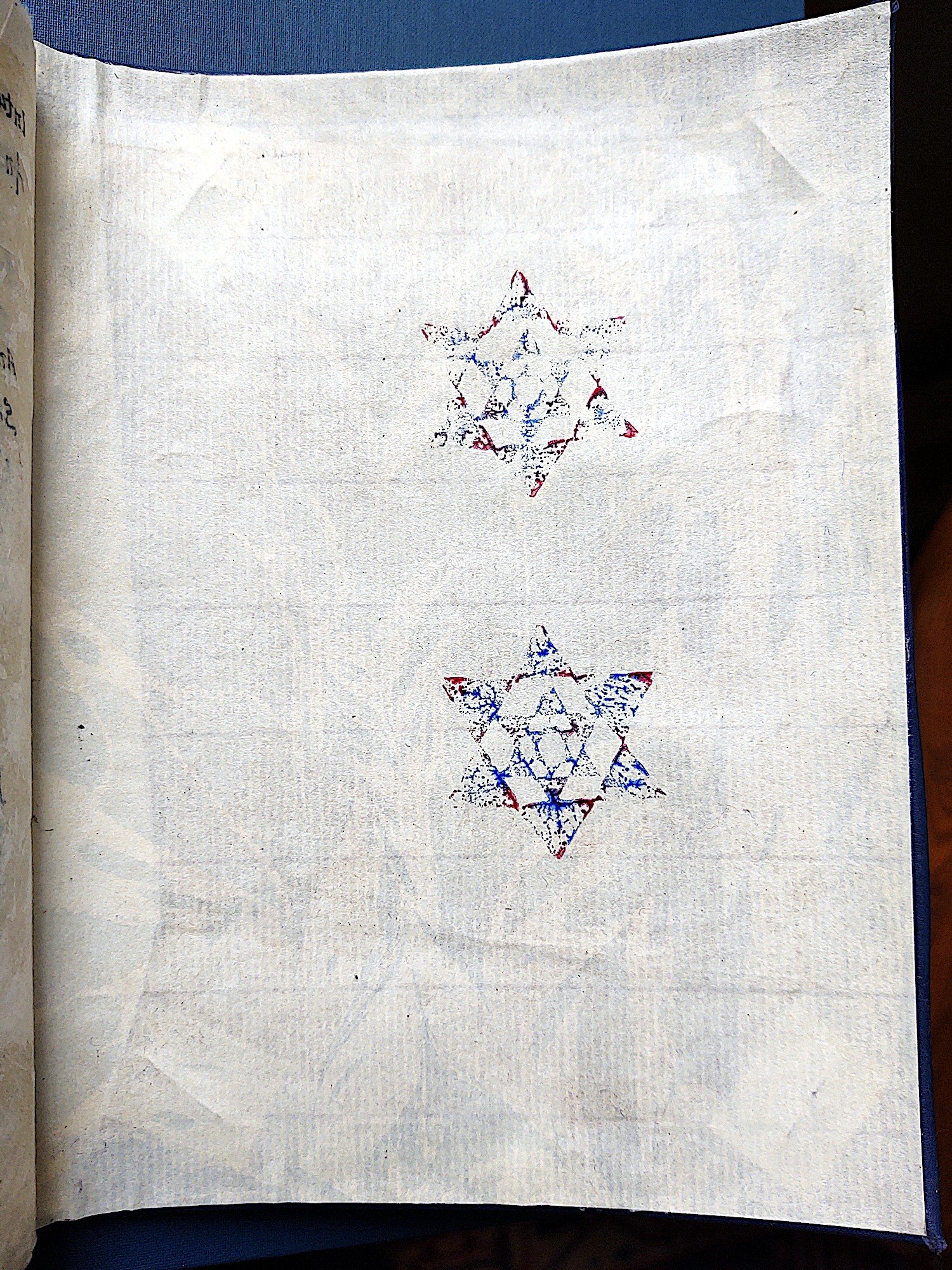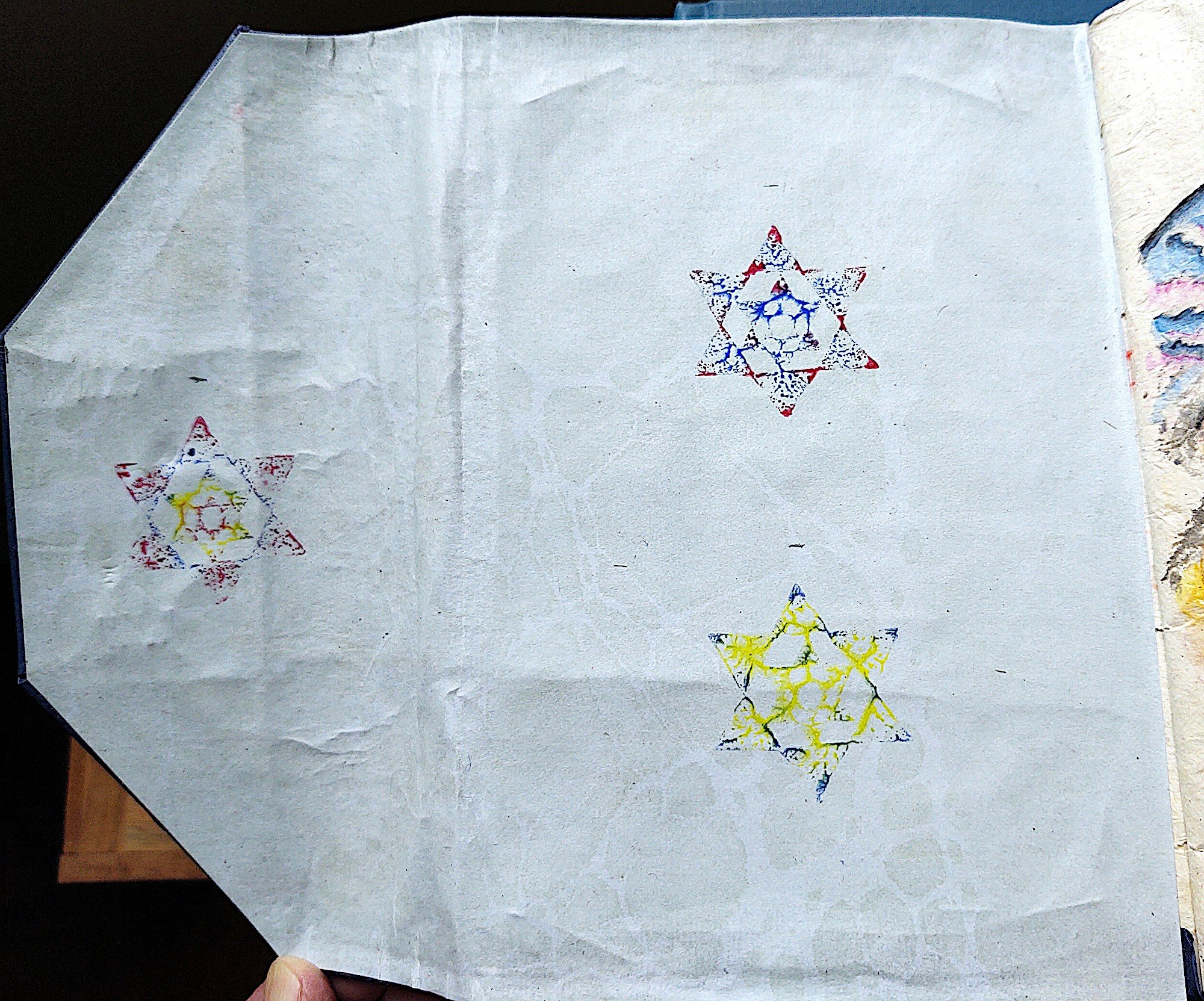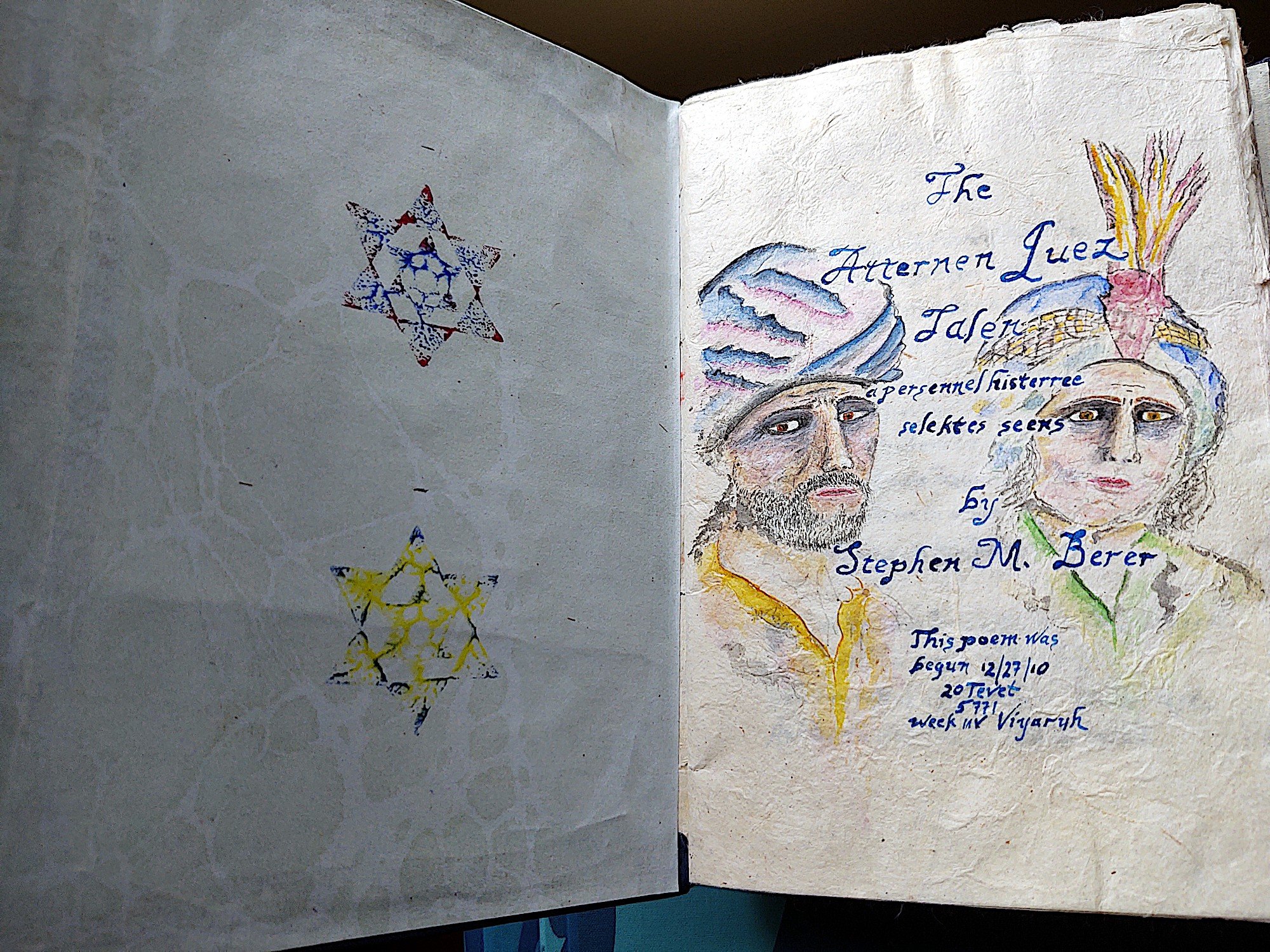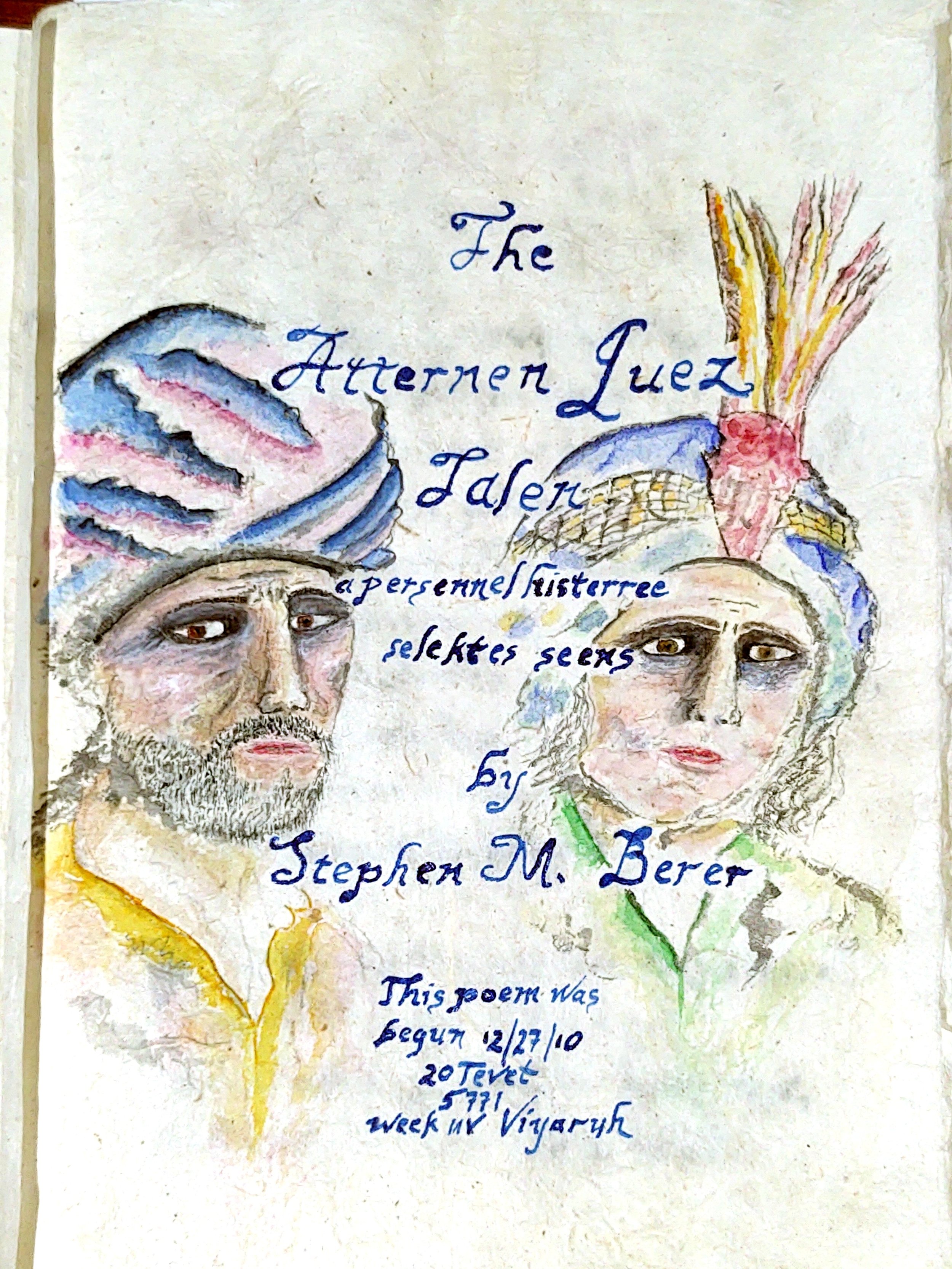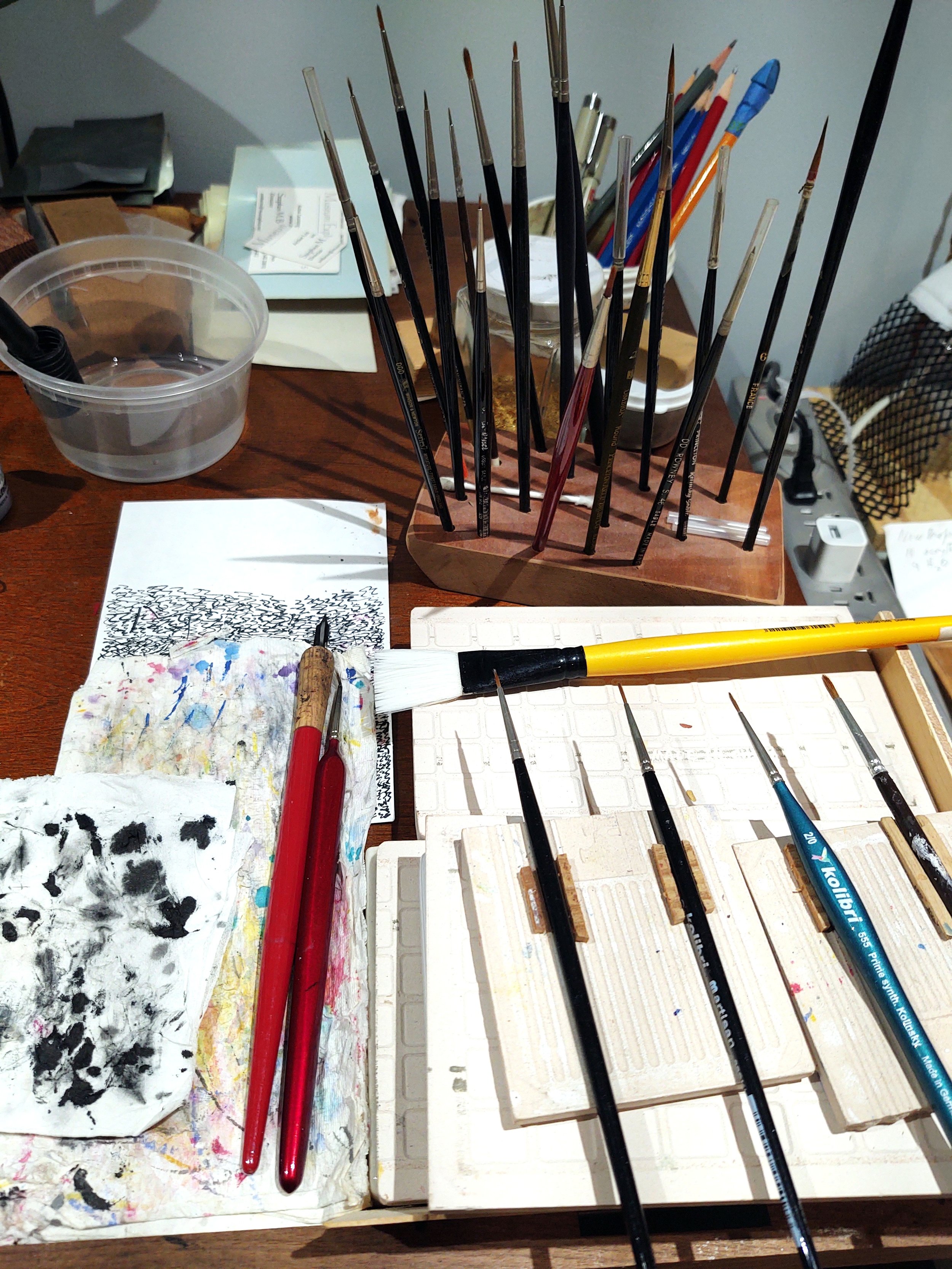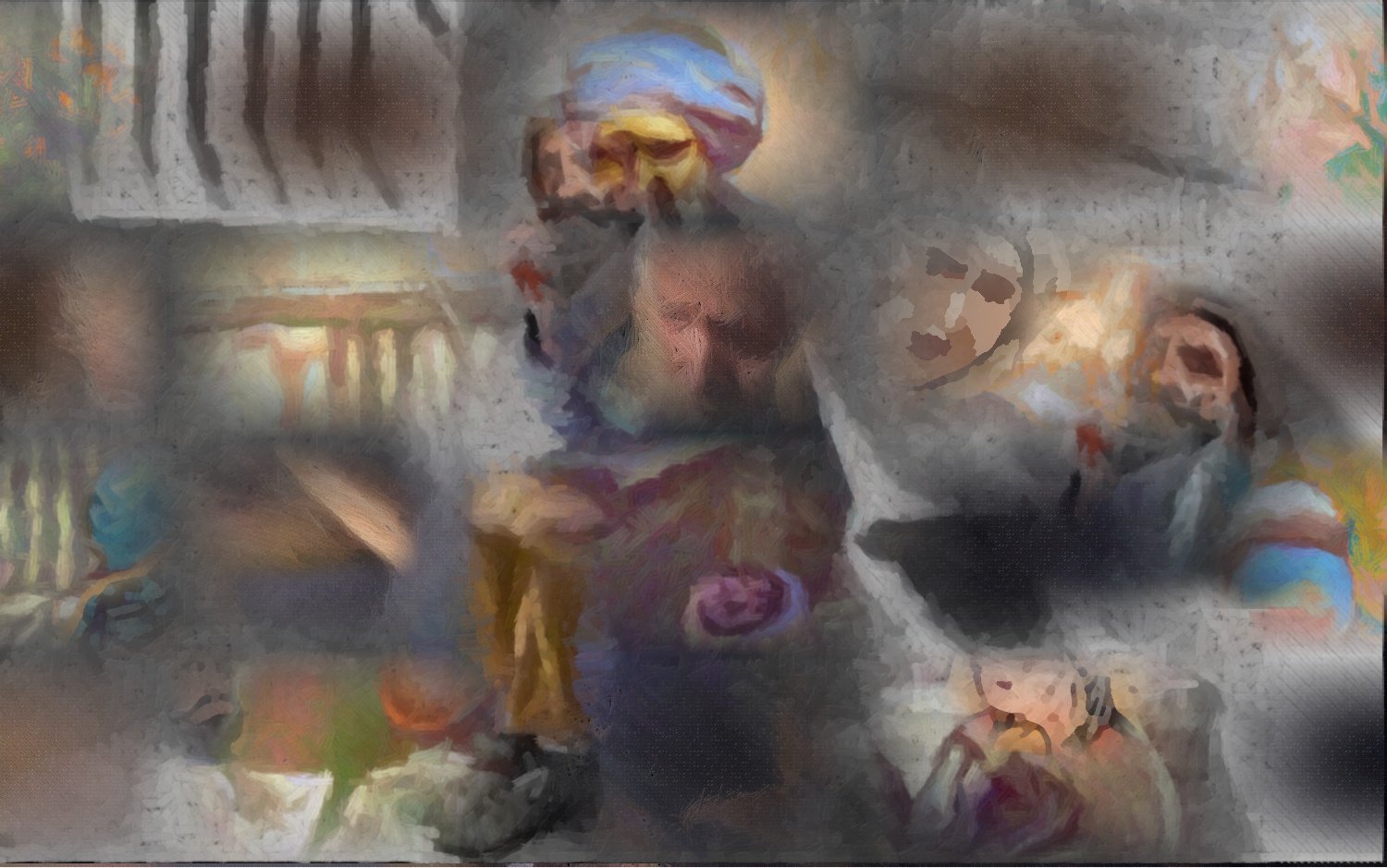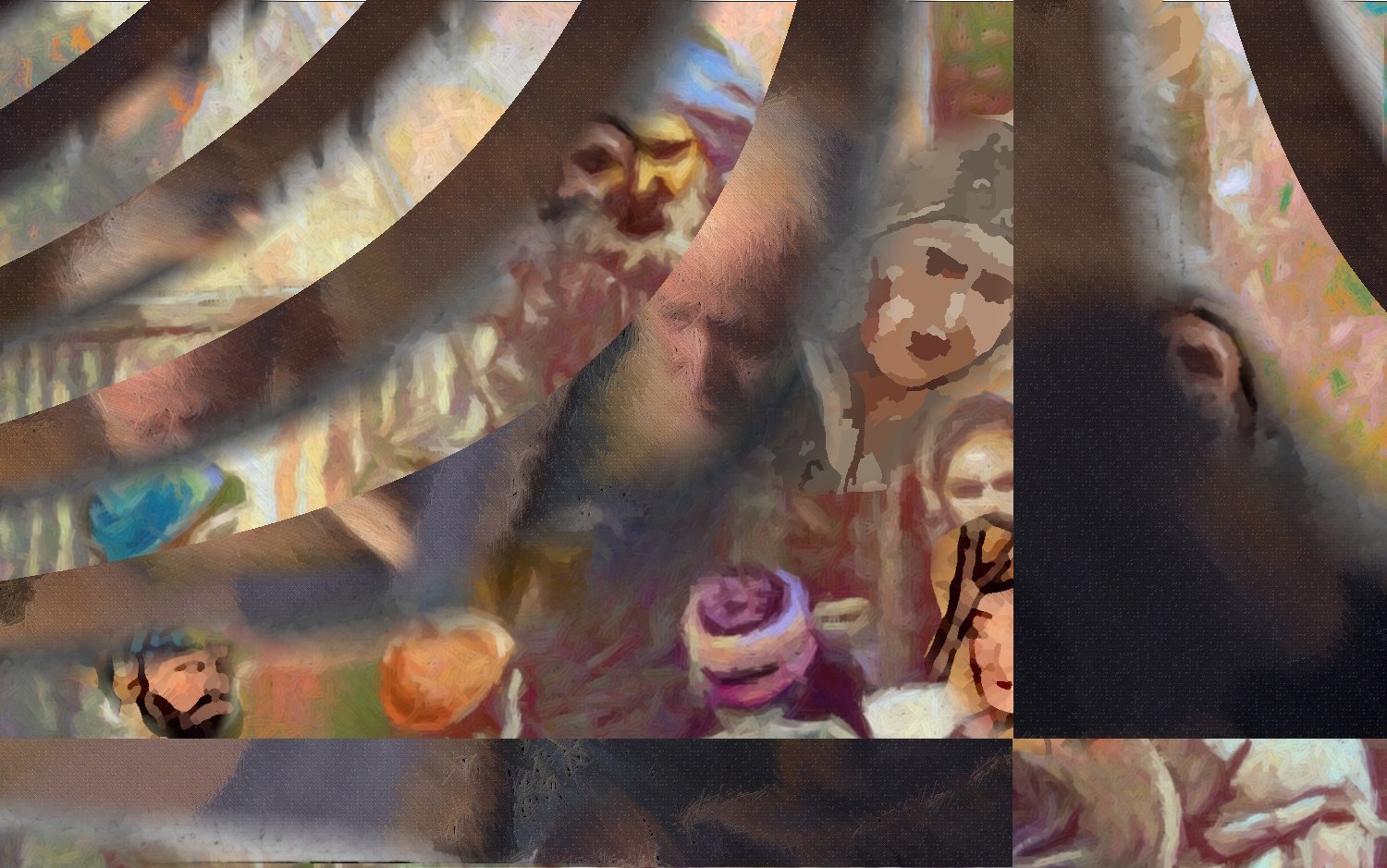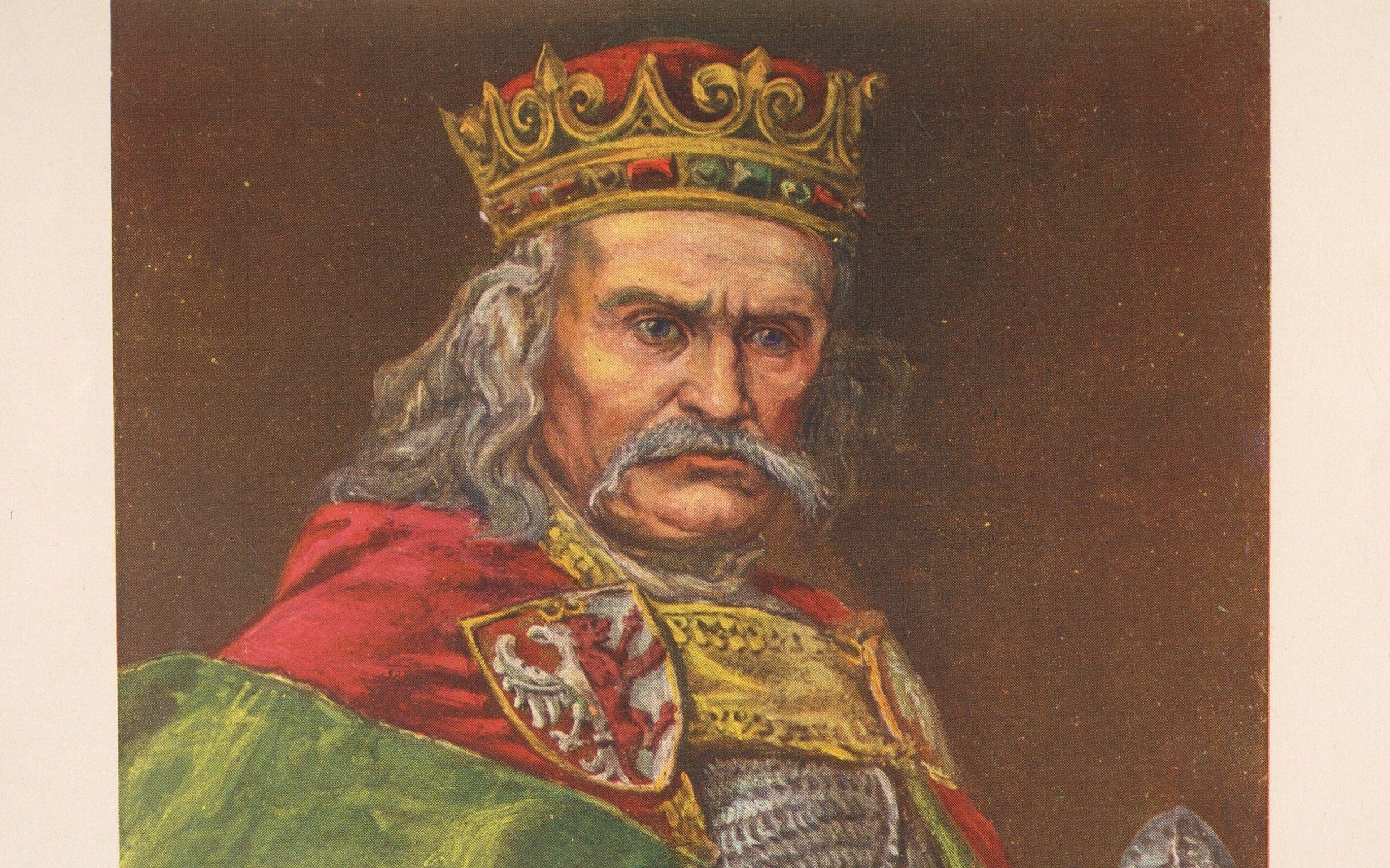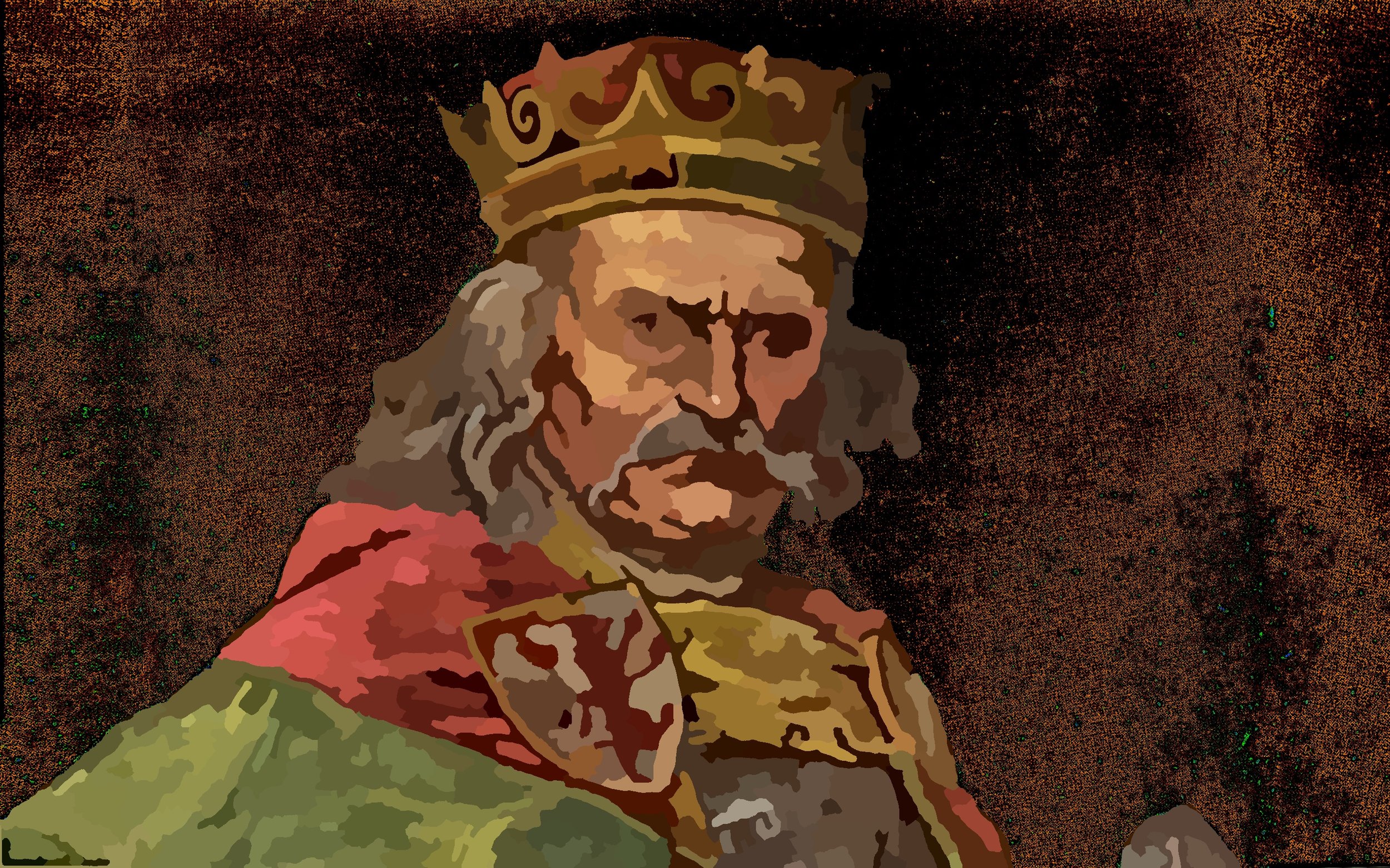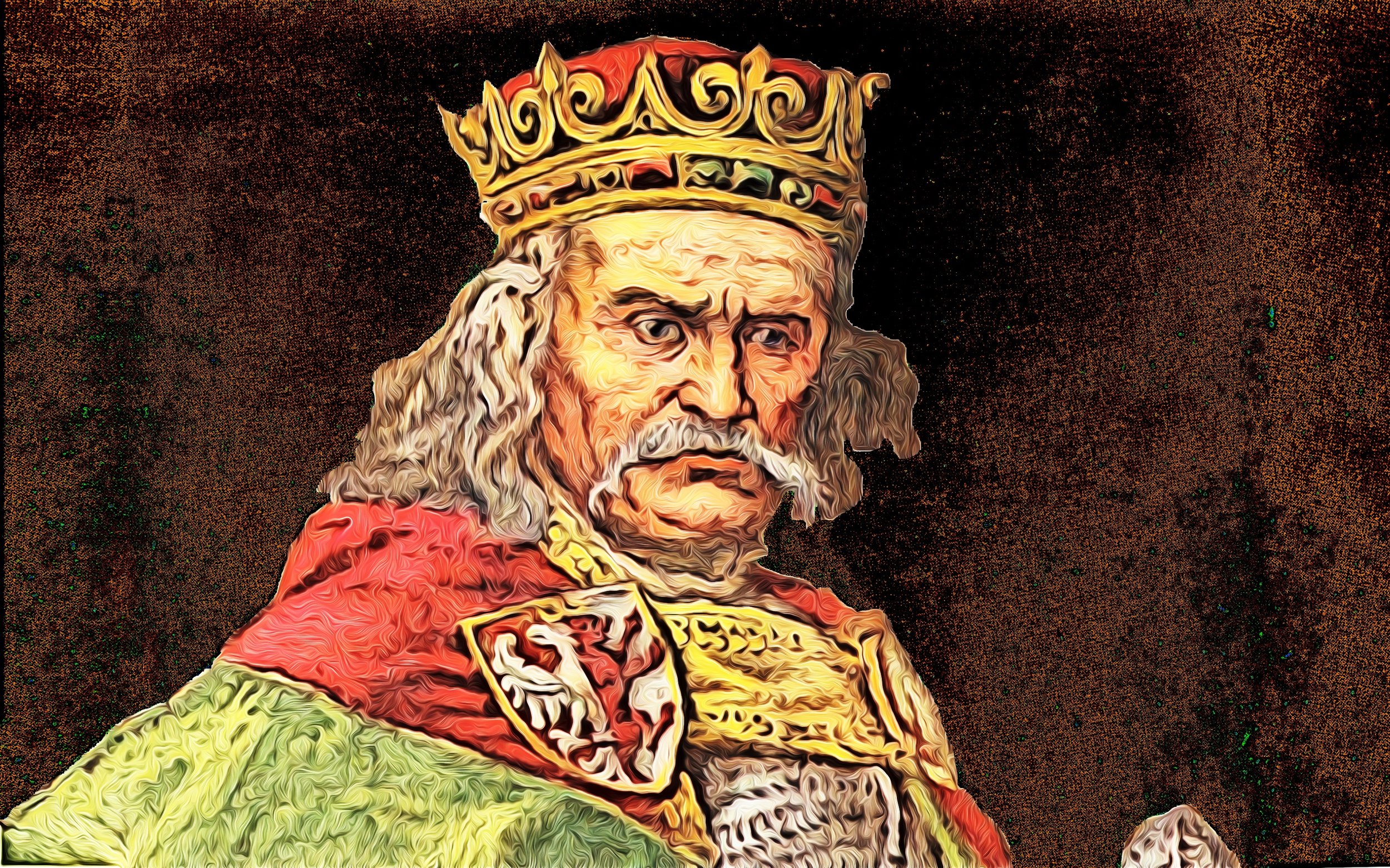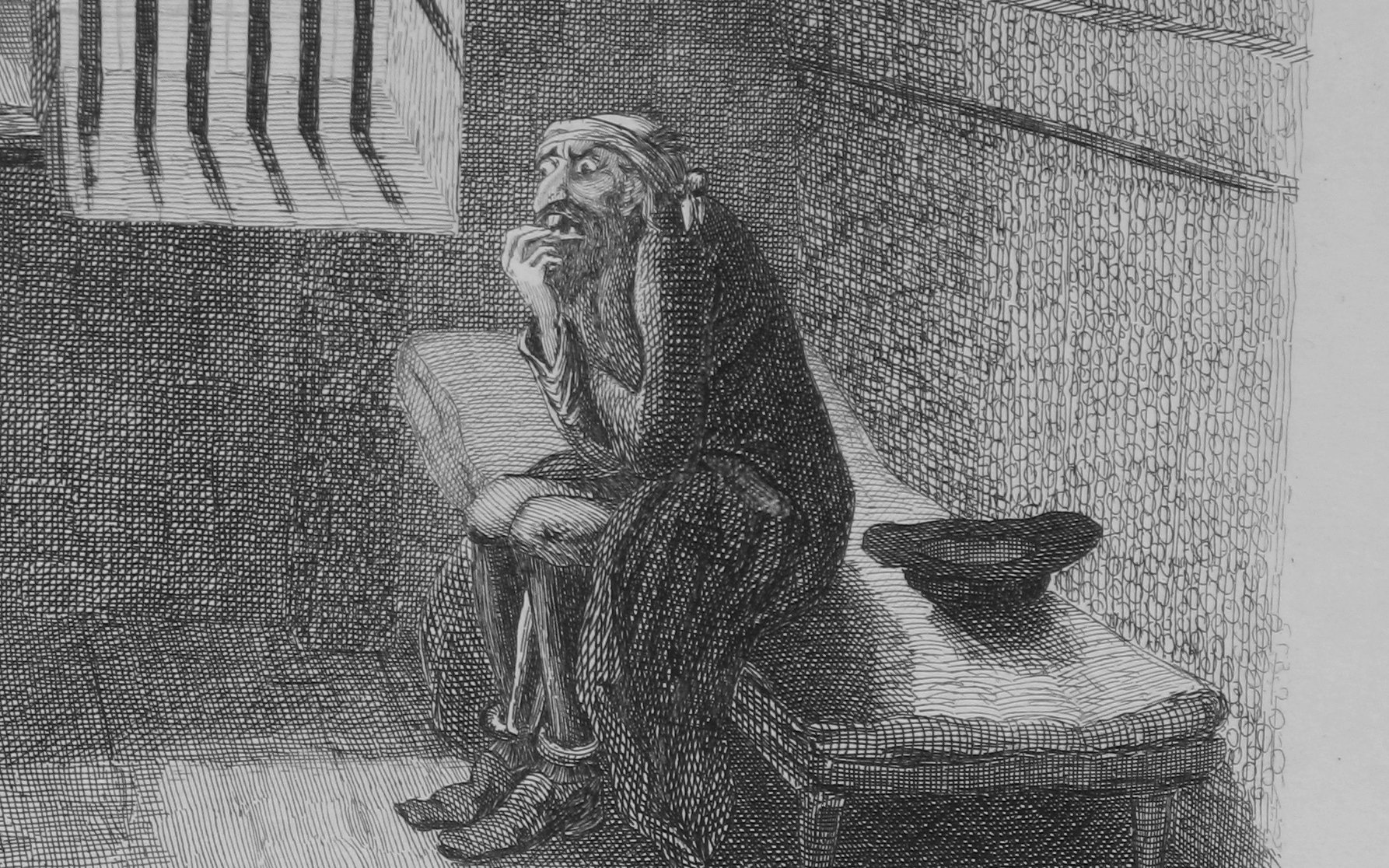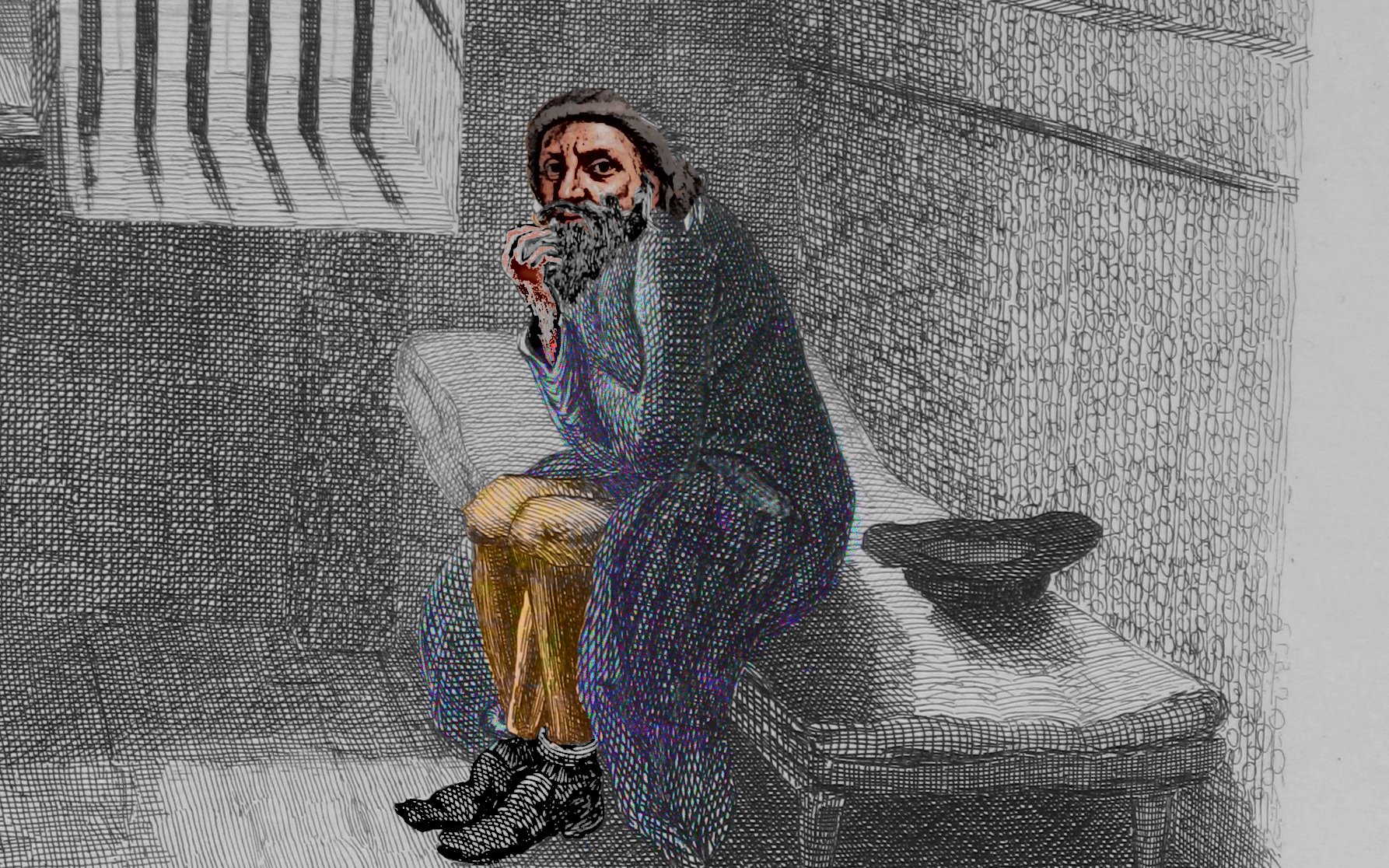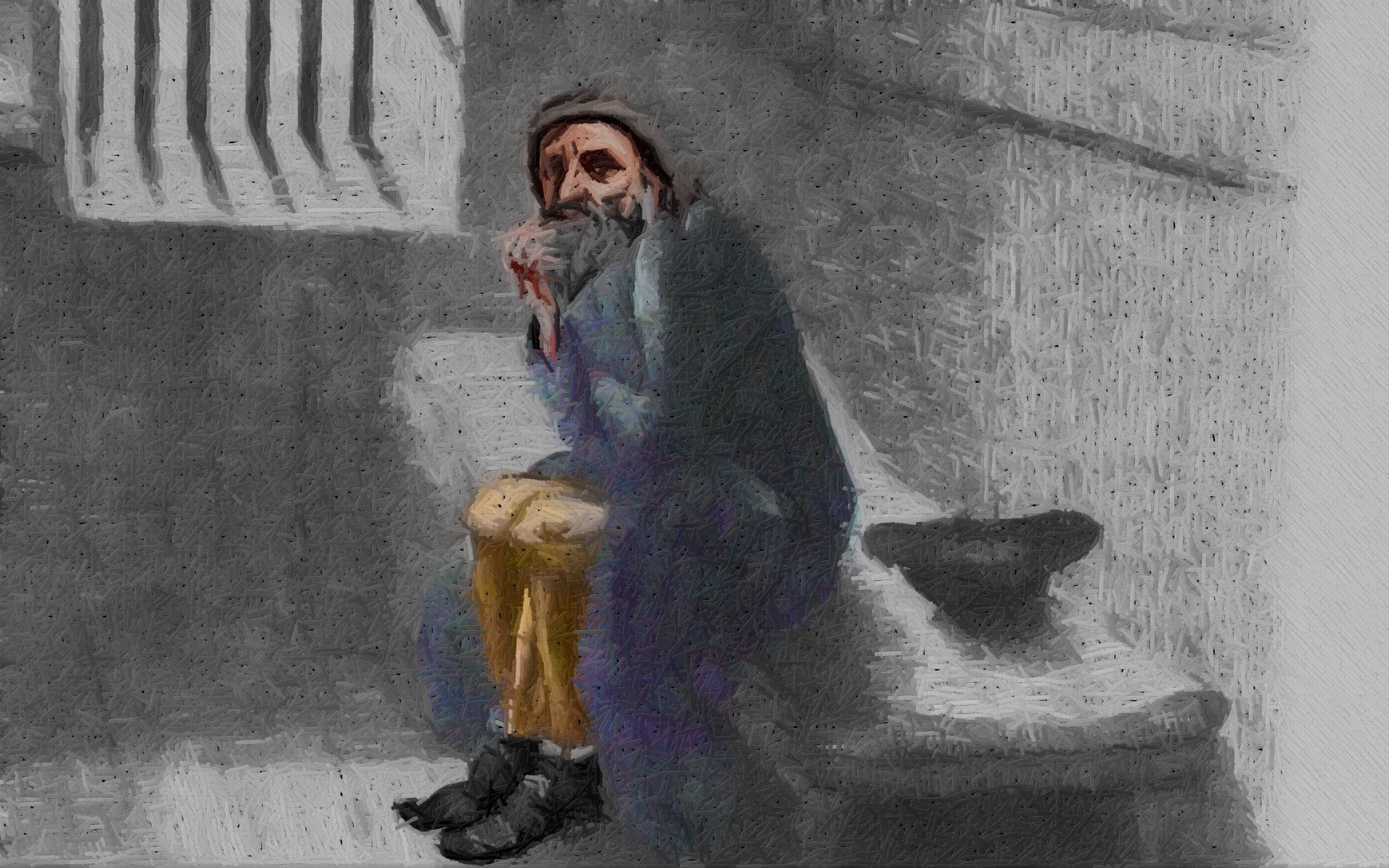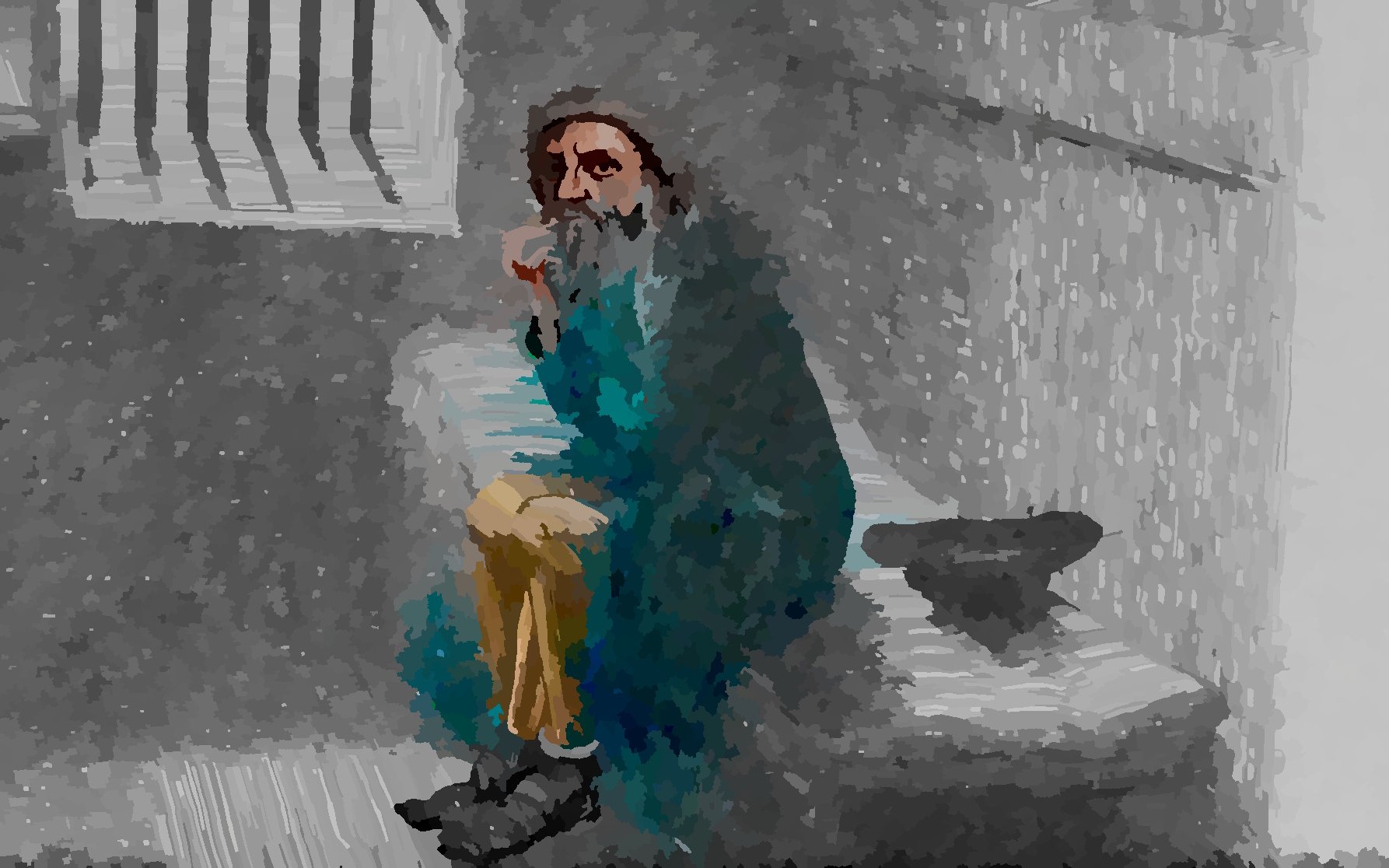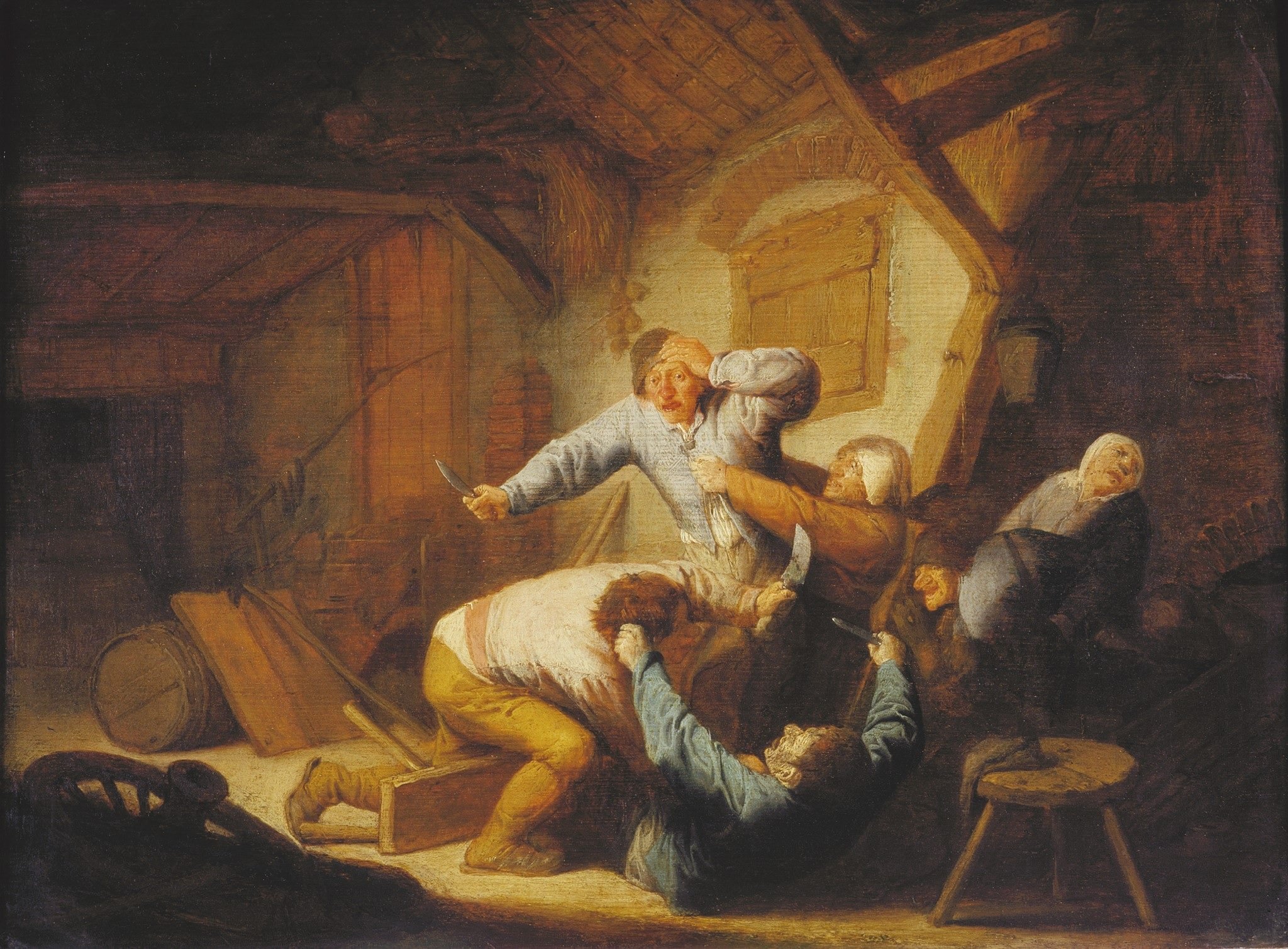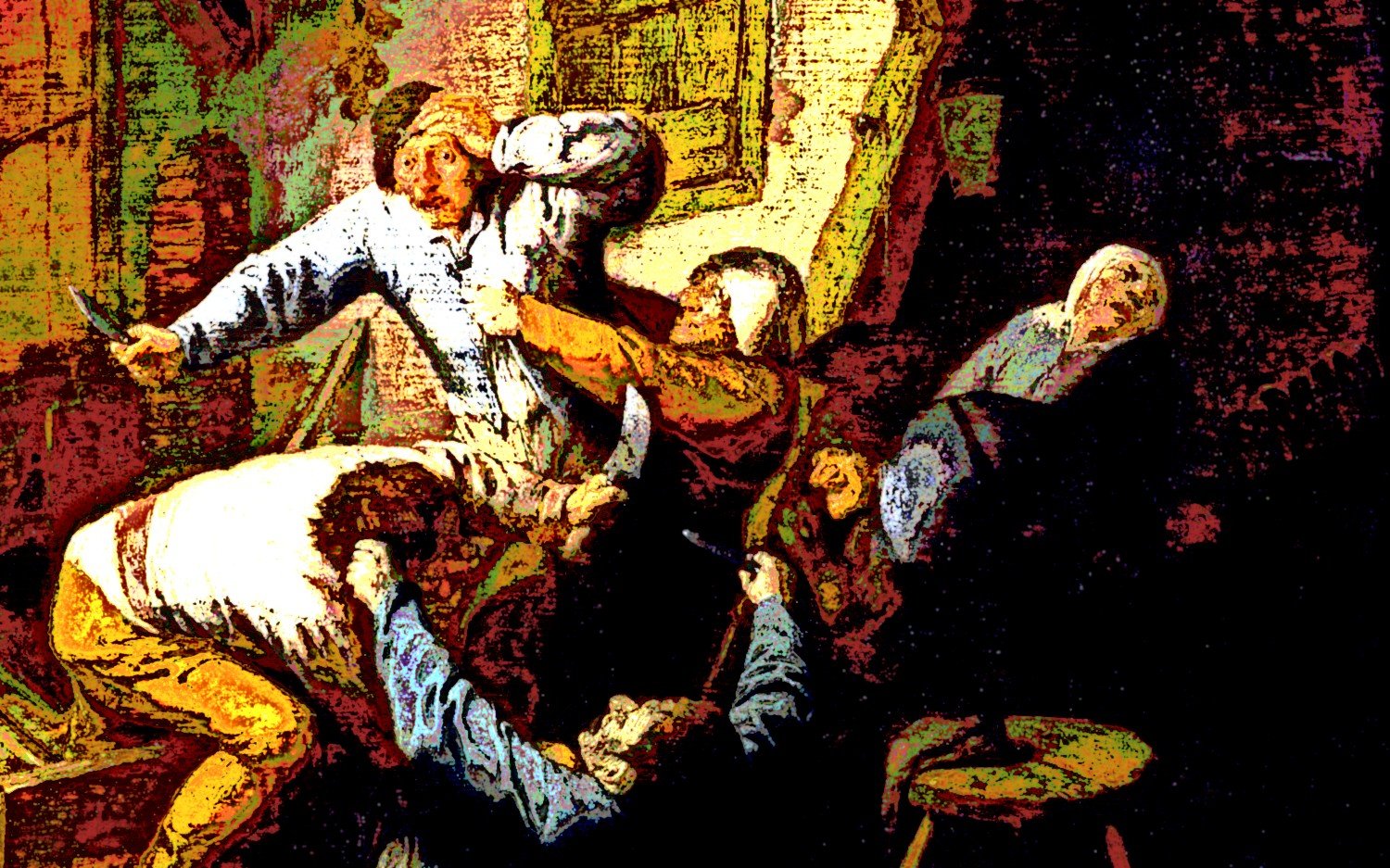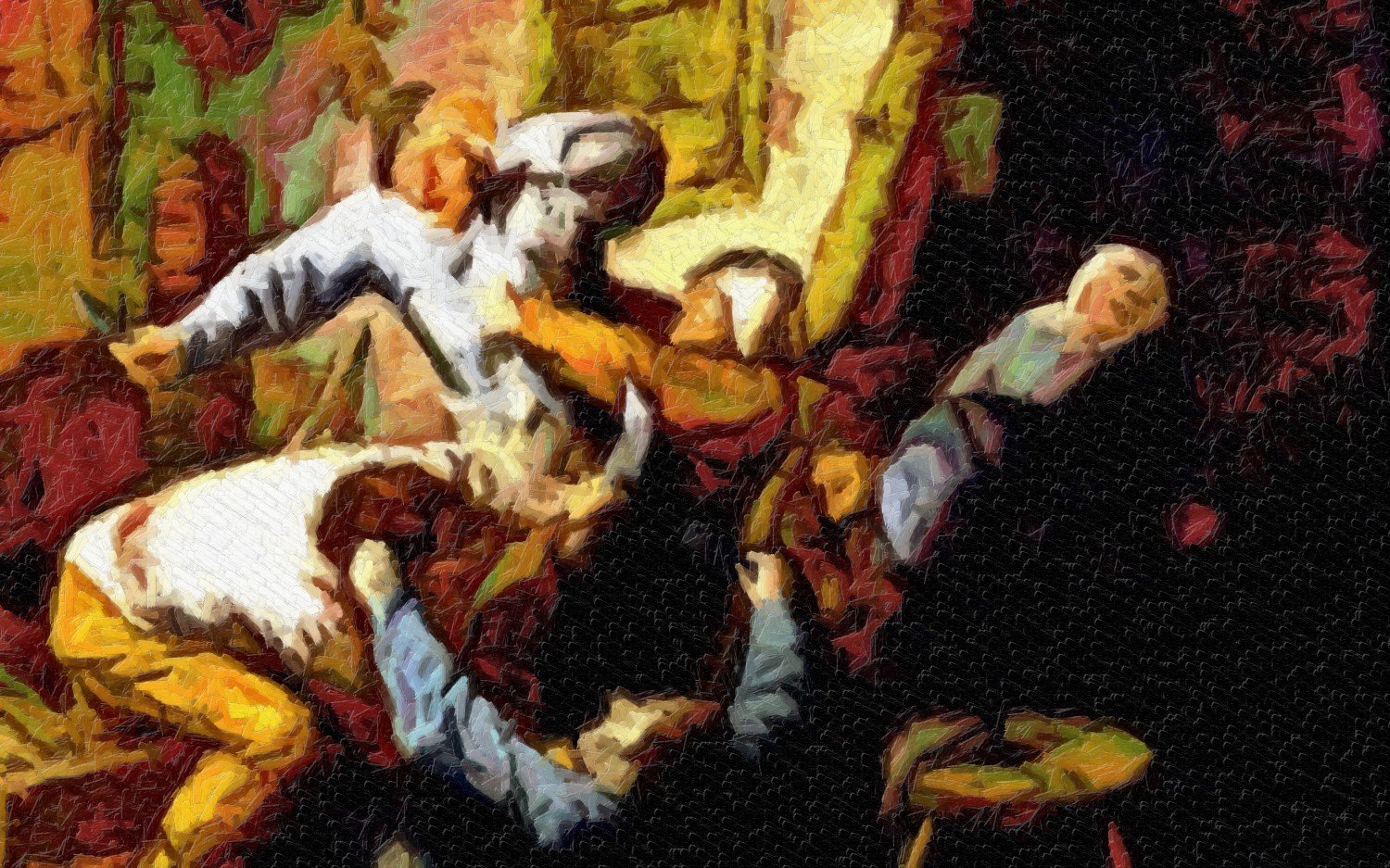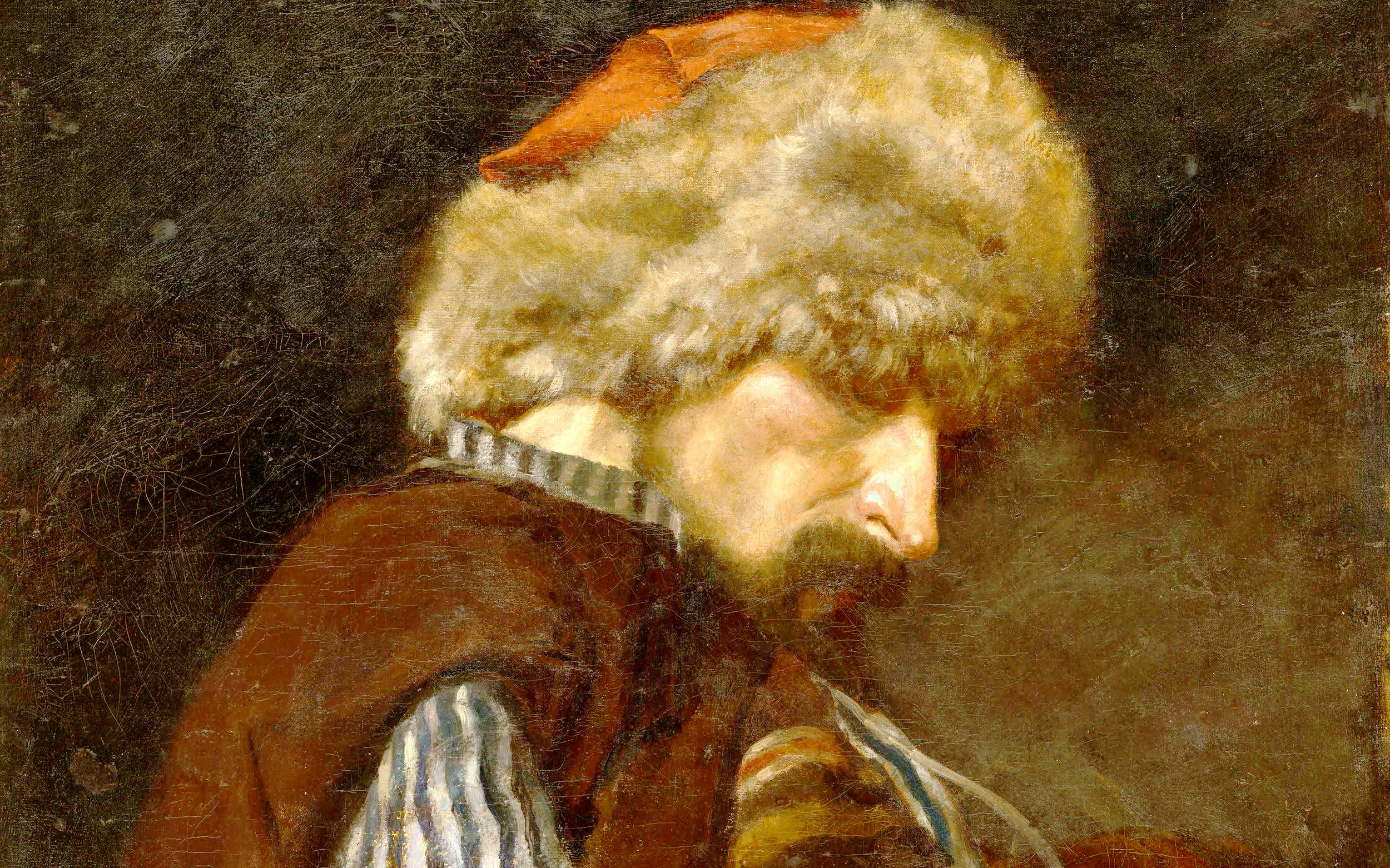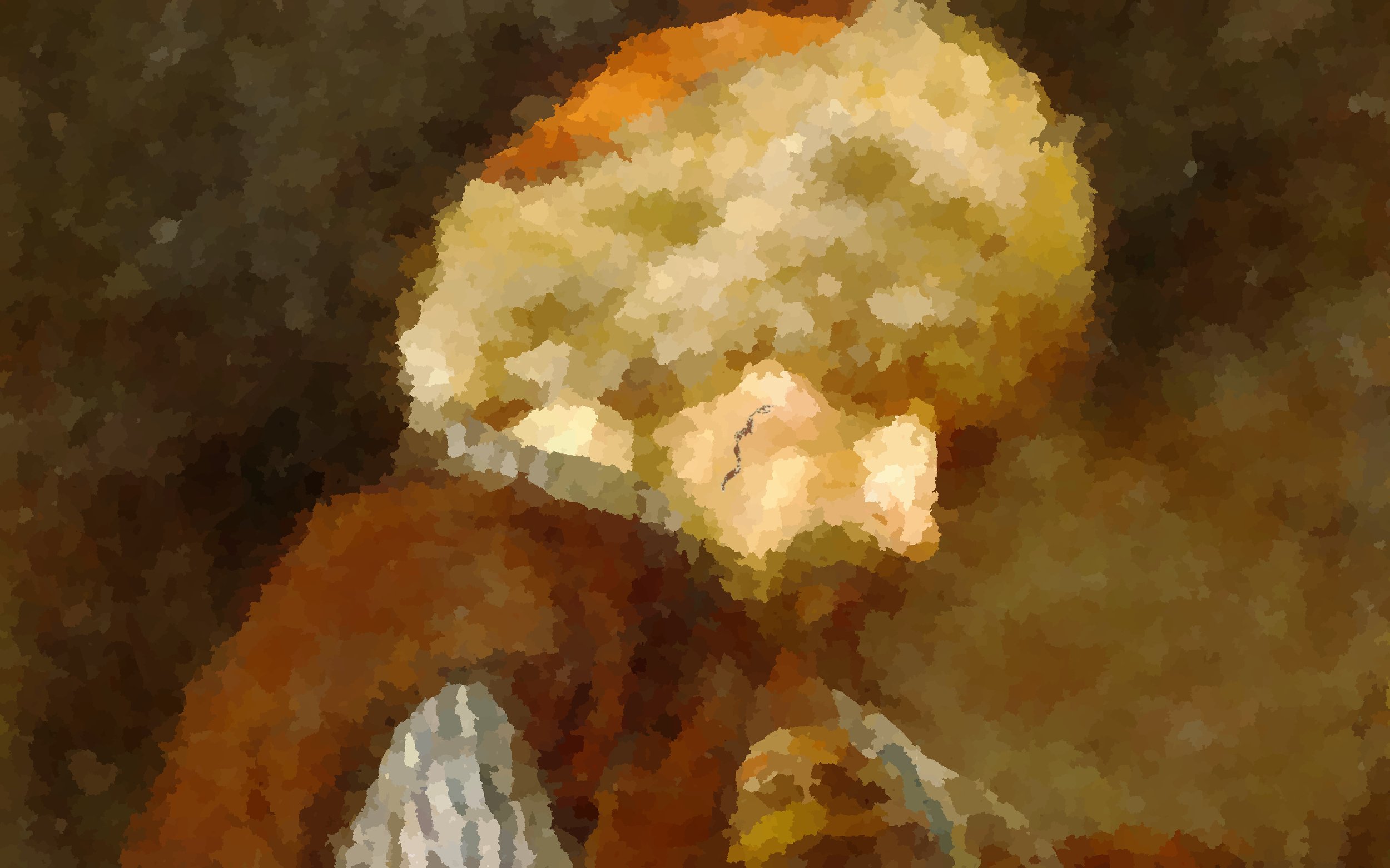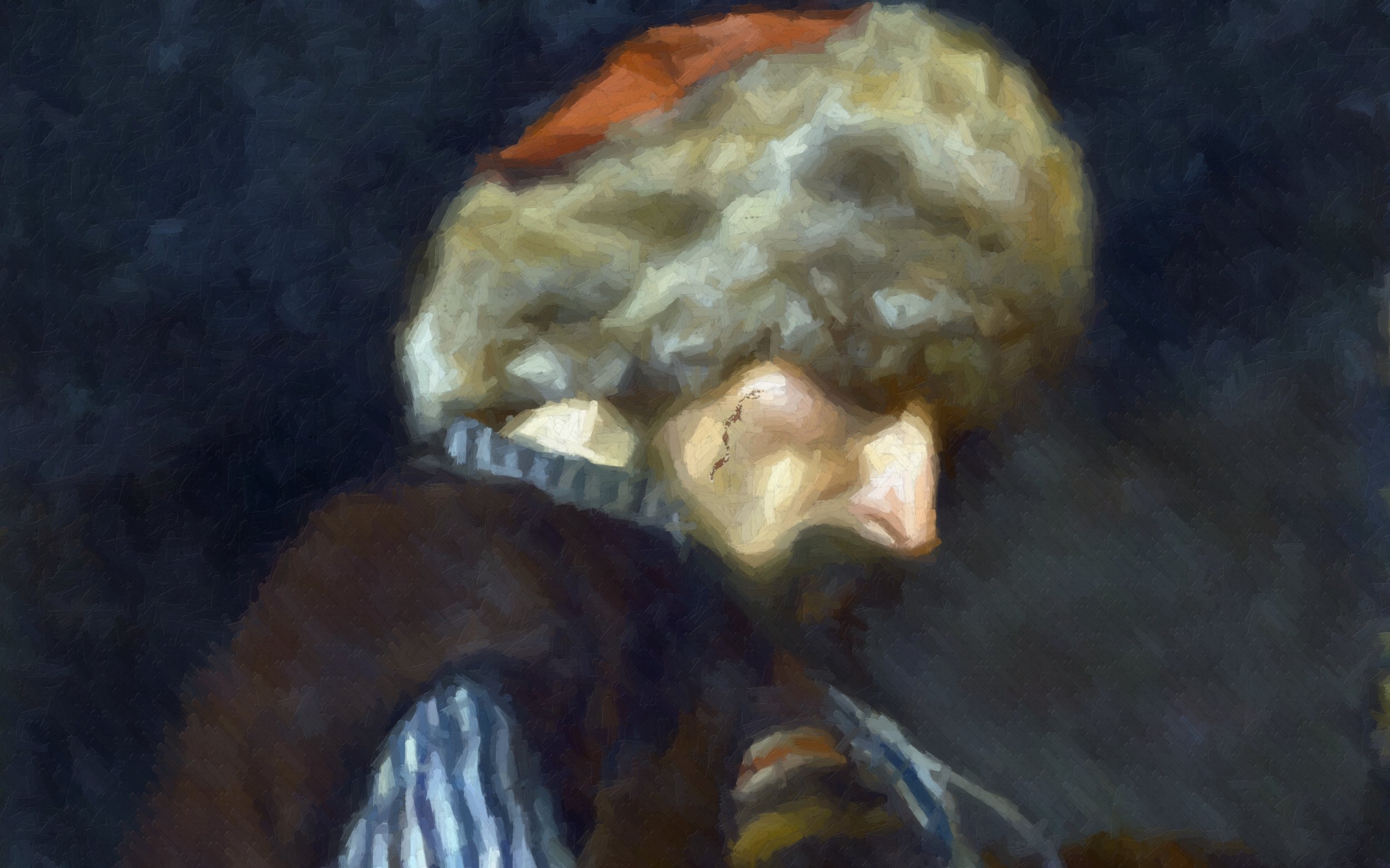As I edit The Atternen Juez Talen (The Eternal Jew’s Tale) to prepare it for epublication, I am finding lots of fascinating pieces. It’s hard for me to realize I wrote all of this, however strange that may sound. For me, it’s more like ‘found art.’ I often feel like I’m just an amanuensis.
Here’s a little piece, a song chanted by marching soldiers. I present it first in its original poetic, steevtok version, and then in standard (what I call ‘old’) English. And in case you’re wondering… yes, Eliot is one of the hollow men I’m talking about here.
Draggoonz Seeng
We ar ŧħuh hawlo menz bornen wor.
We ar ŧħuh aruggen dogz a gor.
We ar ŧħuh sunz uv pagen godz.
An we ar ŧħuh frute uv poluten klodz.
March on, march on, man a dus.
Du wut yu wil; du wut yu mus.
Krinj befor yur konkerrer!
Sharp ar tung an sharpar darts.
Krinj! az we defy yur law.
Bludded hanz an bludles harts.
March on, march on, hawlo menz.
Yur rode iz long; hu knoez its enz?
Louk on us hu skorn ŧħuh jus.
Past? Weel hav no pees a ŧħat.
Louk on us hu mok yur trus.
Fyuecher? Weel hav no peesen ŧħat.
March on, march on, man uv klay.
Yur rode iz short so doen delay.
We ar ŧħuh fawlo menz, up tu ar waest
In krimmennes binjen a morrel disgrase.
Toel wut ar theenks; az led az a flok.
Ar seel iz az hawlo az awl uv ar tok.
March on, march on thru waesten dred.
Like Azzazzelz goed, teŧħerren led.
We ar ŧħuh wawlo menz, sloggen a liez.
We hiden ar impotens behien ar nievz.
Hiden ar enveez in a biggets ubyuse,
Espressen it bes with a mobben noos.
March on, march on, hawlo men.
March on, tu reech yur punnishen.
_______________
Iz ŧħis ŧħuh seeng Ime heeren ŧħem song?
Waal, not uzzaklee. Ime terpretten
With ŧħuh lenzen time tu fokes it
An a lenzen Torrah fer jujjen it.
Wut ŧħay relee sung iz mor like ŧħis:
We ar goud so we wok with God.
An God iz goud so He wok with us.
An wuts ŧħuh proov ŧħat we ar goud
An ŧħaerfor God iz wok with us?
Ŧħat we ar streng in konkerren;
Ŧħat sitteez fawl an keengz ar fled.
An if we stumbel, if we fawl,
An if ar foez ŧħen slotter us?
Stil God iz with us an we ar goud
Fer ar foez a serven demen godz
An God iz kers ŧħem in tiemz tu kum.
Fer us, ŧħuh goud, God iz ar kawz
An awl ŧħat we du konformen Hiz lawz.
An I heerd it like ŧħis in evree tung.
_________________
Here’s the old English version:
Dragoon’s Song
We are the hollow men born for war.
We are the arrogant dogs of gore.
We are the sons of pagan gods.
And we are the fruit of polluted clods.
March on, march on, man of dust.
Do what you will; do what you must.
Cringe before your conquerors!
Sharp our tongue and sharper darts.
Cringe as we defy your law.
Bloody hands and bloodless hearts.
March on, march on, hollow men.
Your road is long; who knows its end?
Look on us who scorn the just.
Past? We’ll have no piece of that.
Look on us who mock your trust.
Future? We’ll have no peace in that.
March on, march on, man of clay.
Your road is short so don’t delay.
We are the follow men, up to our waist
In criminal binges and moral disgrace.
Told what to think and led like a flock,
Our souls are as hollow as all of our talk.
March on, march on through waste and dread.
Like Azazel’s goat, tethered and led.
We are the wallow men, slogging in lies.
We hide our impotence behind our knives.
We hide our envy in a bigot’s abuse,
And express it best with a mob and a noose.
March on, march on, hollow men.
March on to reach your punishment.
_______________
Is this the song I heard them sing? Well, not exactly. I’m interpretin’ with the lens of time to focus it and a lens of Torah for judgin’ it. What they really sung is more like this:
We are good so we walk with God.
And God is good so He walks with us.
And what’s the proof that we are good
And therefore God will walk with us?
That we are strong in conquering;
That cities will fall and kings will flee.
And if we stumble, if we fall,
And if our foes then slaughter us?
Still God is with us and we are good
For our foes are serving demon gods
And God will curse them in time to come.
For us, who are good, God is our cause
And all that we do conforms to His laws.
And I’ve heard it like this in every tongue.
